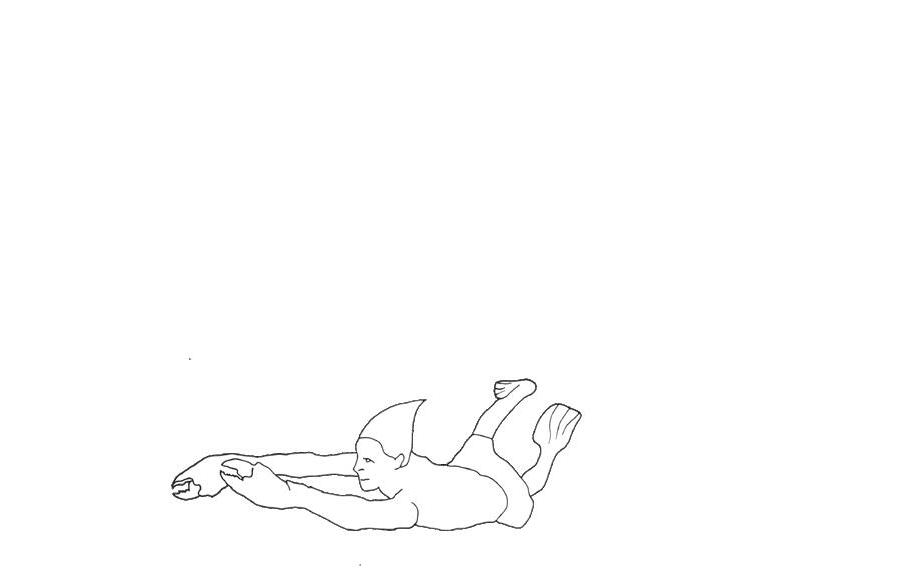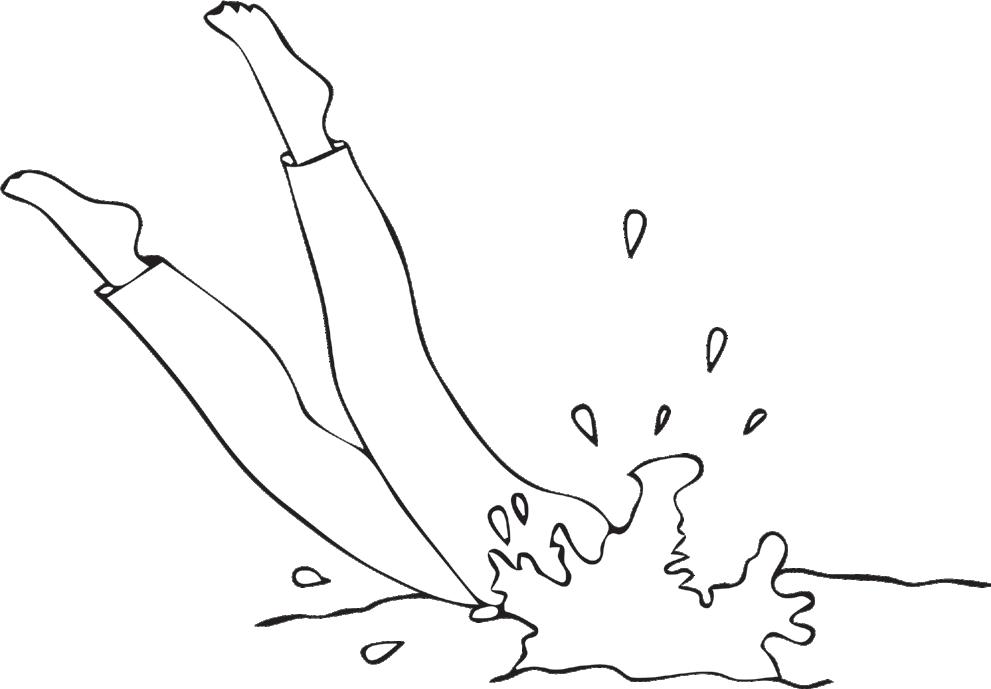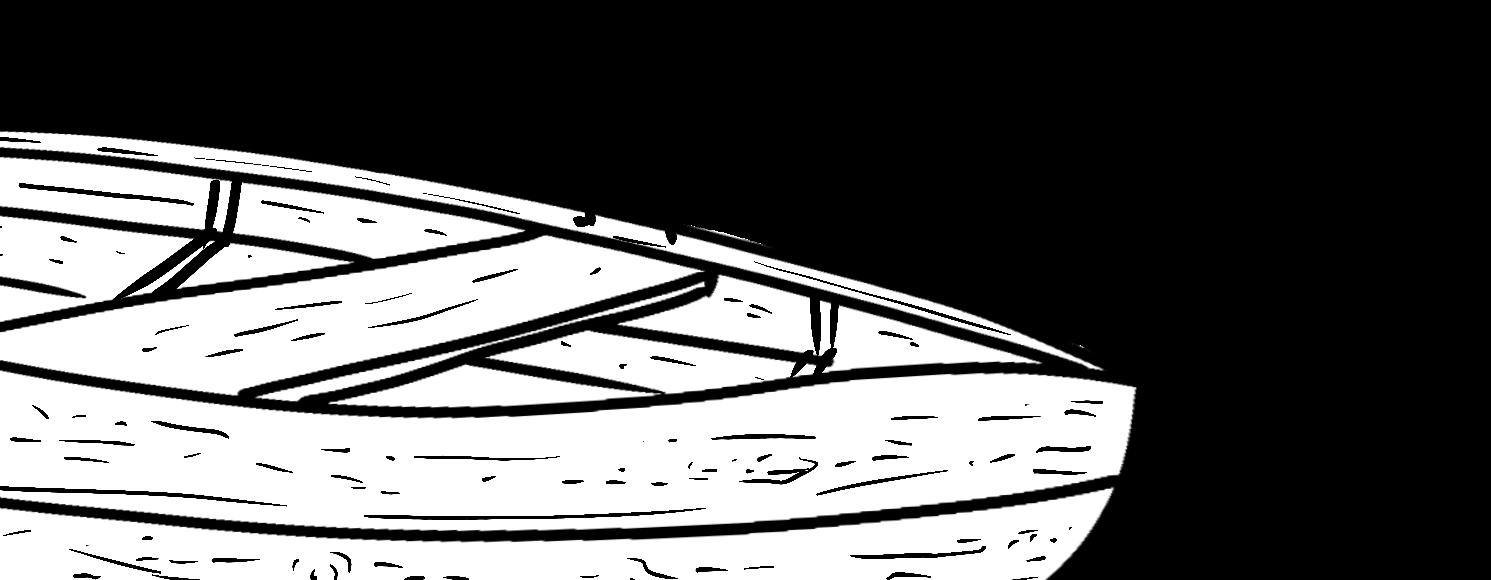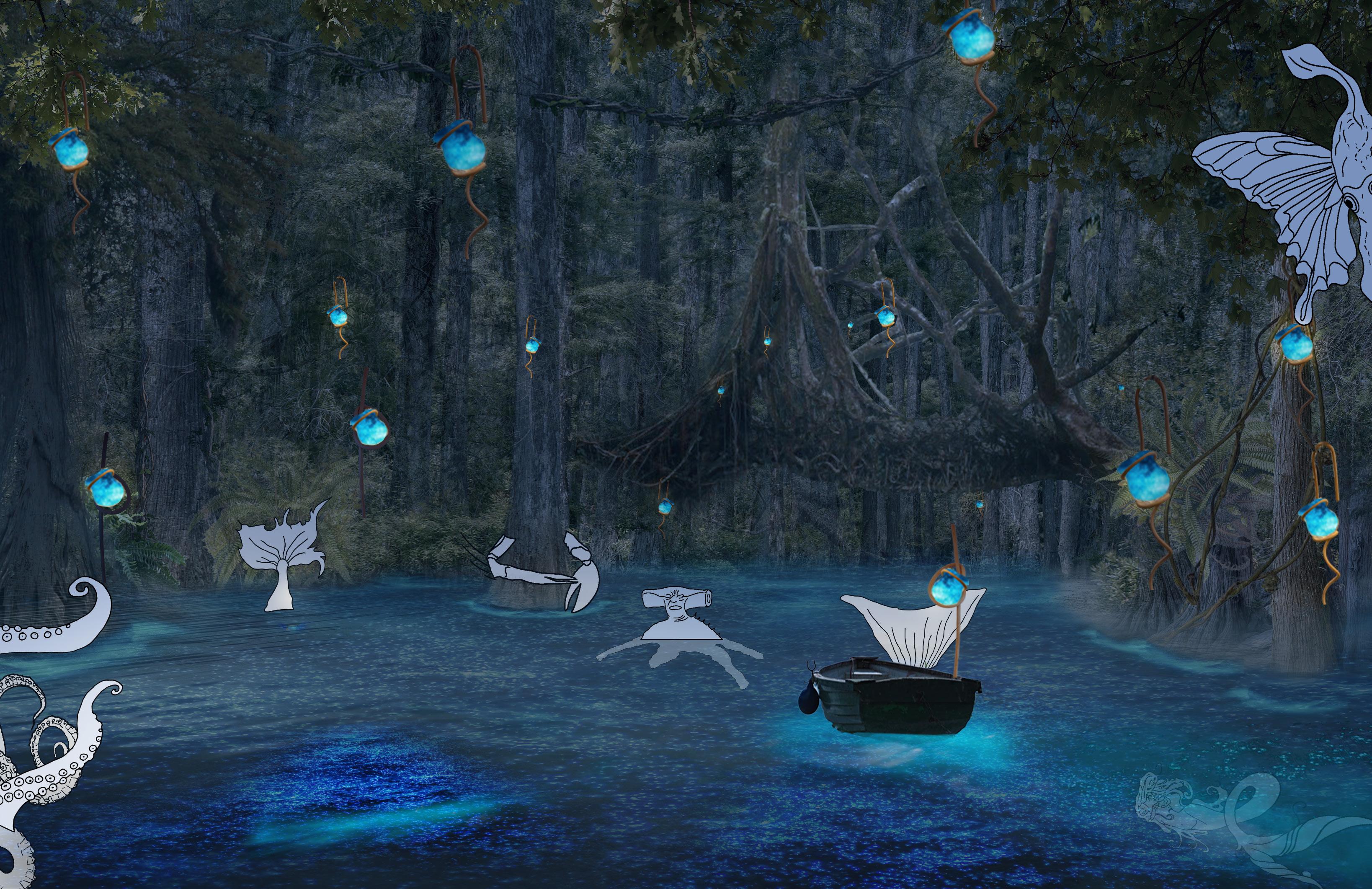
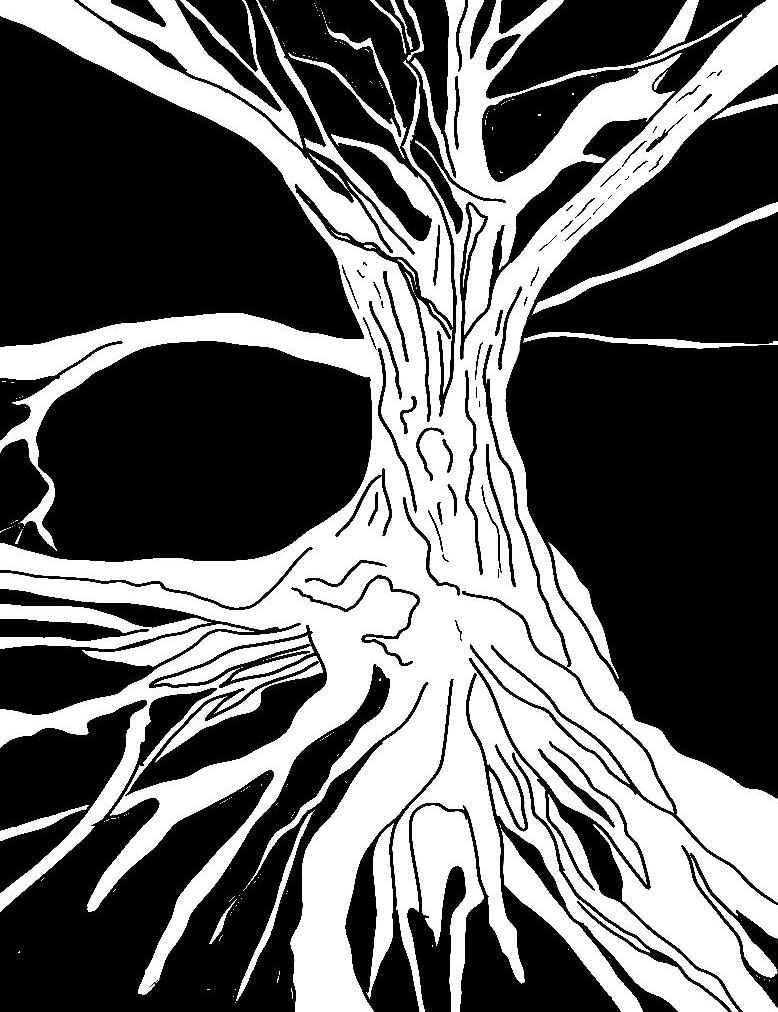



This amphibious future is a coalescence of the authors shared interests in Traditional Ecological Knowledges, climate justice, climate adaptation, and coastal ecologies. It seeks to fuse and envision how traditional methods and knowledges of land management might steer us toward a just future.
In the years leading up to 2022, we have seen the destruction embedded in climate change, particularly as it relates to the inequity of those affected. Often, human populations forced to the margins of society tend to also disproportionately experience the burdens of environmental threats. Specific to this imagined future is the reality of displacement, where those forced to reside in or near lowlands face the highest risk of losing their homes, communities, and livelihoods to rising seas.
In episode 248 of the For the Wild podcast, Queen Quet, Chieftess for the Gullah/Geechee Nation, speaks about the Survival of Sea Island Wisdom. She quotes the value in keeping coastal communities in-tact, the importance of maintaining intergenerational knowledge, and explains that ‘a genocide of a culture occurs’ if groups are forcibly removed from a place.
Our design questions were formed by this understanding, asking: What forms of adaptation could disrupt the displacement of marginalized communities caused by sea level rise? How might humans not simply live, but live well in semi-submerged environments? How might we prepare our environments to be habitable during inundation through innovation and stewardship? And most importantly, how might those most likely to be affected stay rooted in place?
In Mar’pool’ 2200, the temperature has warmed a few degrees, the mean sea level has raised a meter or more, and flood seasons are exacerbated in frequency, duration, intensity, and height. This has given rise to a new coastal ecology that is sponge like, perpetually saturated, often brackish, and more tropical than we experience presently.
Homes float on the river, and are partially rounded and submerged, quite like boats. Likewise, they are connected to one another in community pods, a hybrid of both future and ancient technologies. Social ties equate to resiliency and increased physical and mental health, and as such, community living, self sufficiency, and coming together through the sharing of cultural knowledge, experiences, and daily tasks are paramount in 2200.
The notion of personal agency as it relates to choice is presented in the story, in deciding whether to stay in place, whether to leave, what role one might want to play in this society, and what biophysical adaptation they might desire.
This ‘adaptation’ component is born from the idea of salt as a catalyst for change. In past ecologies of Marpole, the salt season (when ocean water reaches further inland) was resisted, eroding the community. Instead, in Mar’pool’ 2200, the brackish condition is embraced in the river settlement, where salt floods are celebrated and bring with them spiritual
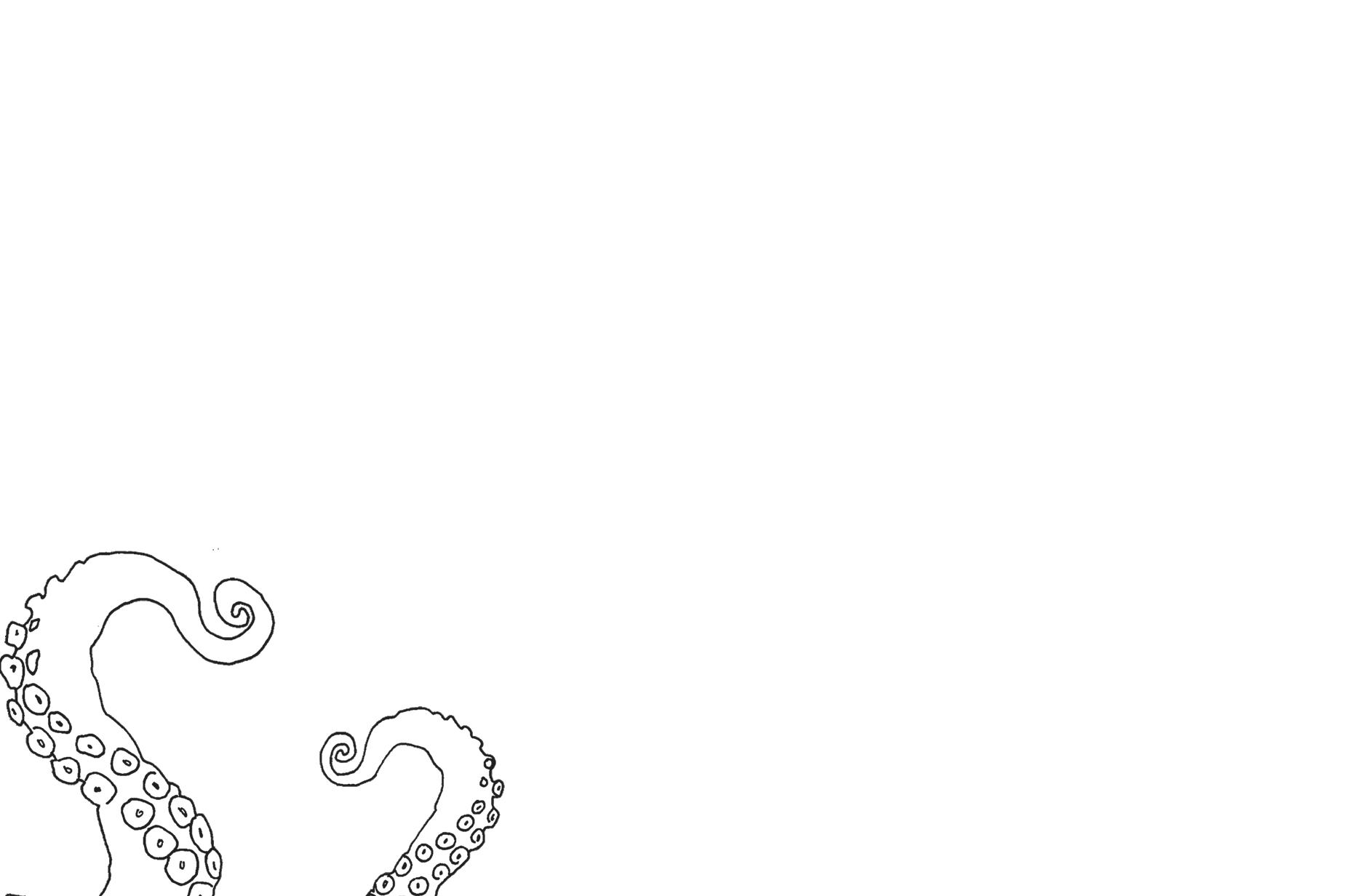
Kelp Forest
Floating Aquaculture
The Enchanted Forest
River Settlement
Eelgrass Garden
Floating Wetlands

Toshi’s Weir
Root Bridge
Clam Gardens
WoodGroundsBending
MAR’POOL’
FORMERLY KNOWN AS MARPOLE
This story is dedicated to all future generations, without whose creativity, commitment, knowledge, and passion we stand no chance. Each of you deserve a world as abundant and just as the one we have only begun to imagine.
So many years have passed since then.. Since the day things went quiet and they left for the mountains. The idea was to retreat from the rising waters, that they’d be better off on higher ground… I guess we’ll never know. Today, some remain where we once were – where the land meets the sea. Yes, our world was flooded but do not weep for us. Our people have adapted. We welcome the water, we embrace change, and we have found new and old ways of stewarding the land. The river harbours us now, the sea transformed us, and we live partially submerged, abundant and whole. Our connection to each other and to this place knows no bounds. Our roots are deeper than the river flows.

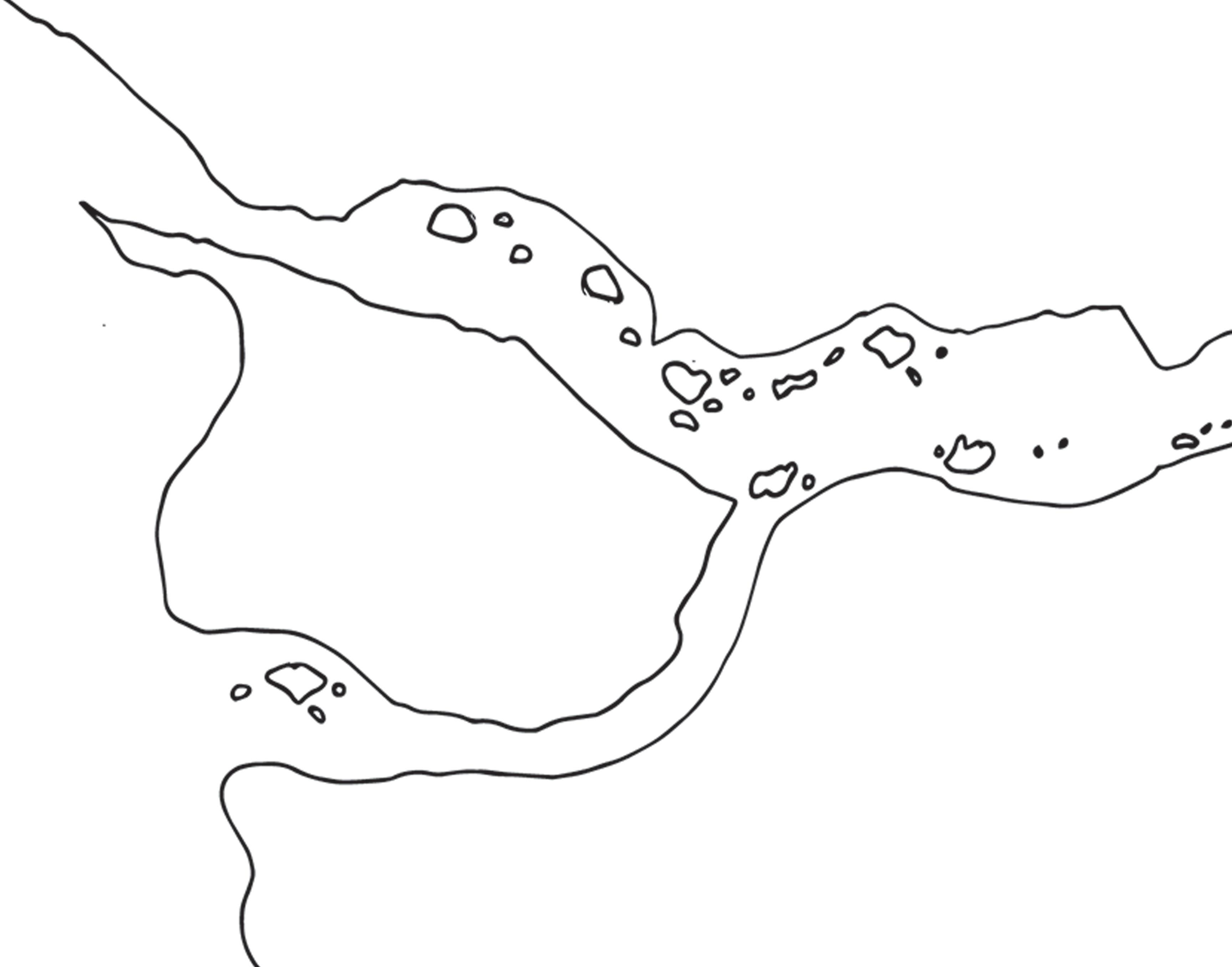
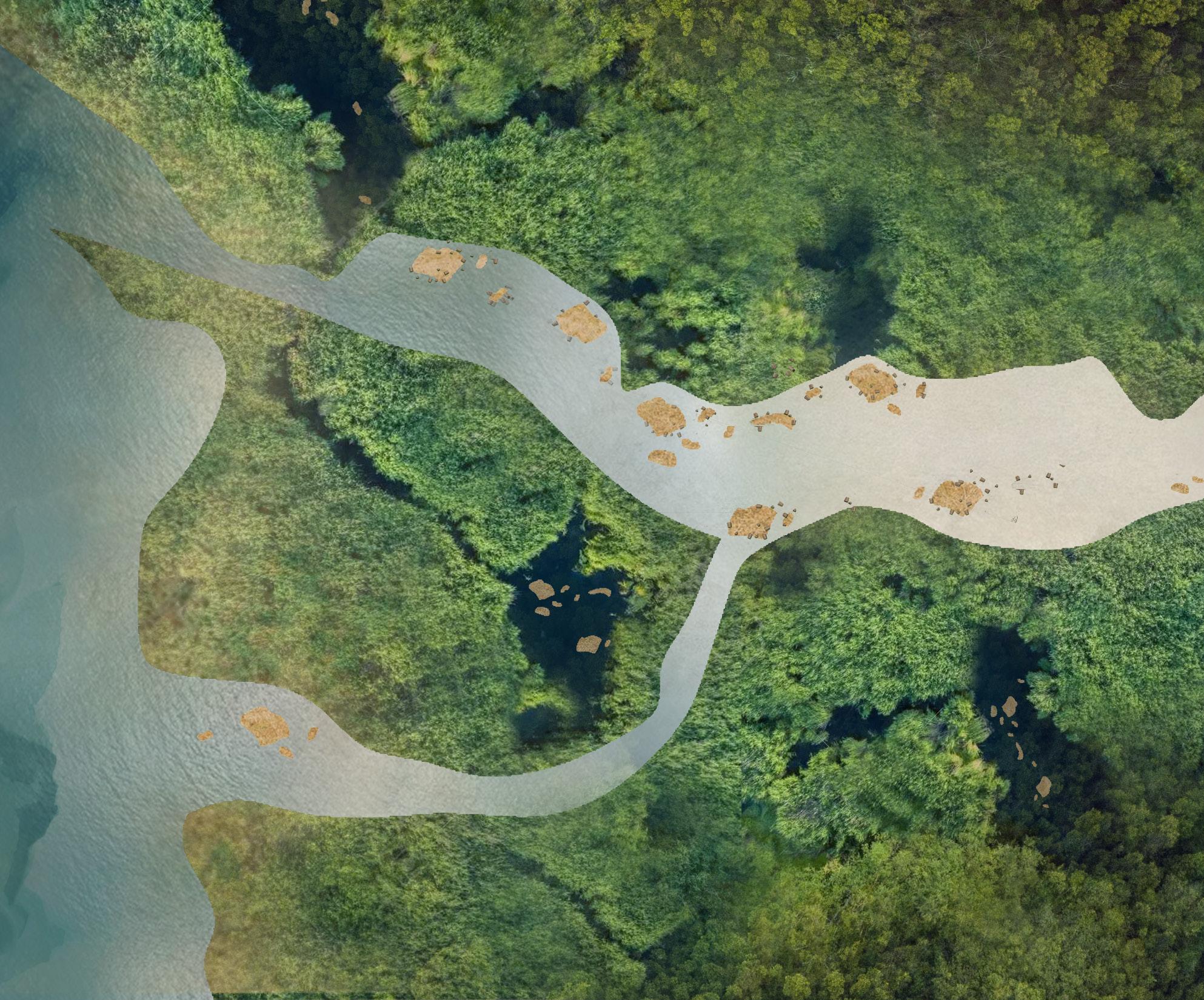
On this bright spring dawn, Sarai and grandma Nim look off into the river settlement. Almost everything is the same.. Almost. The birds are singing their morning song and the earth is slowly waking, but Nim senses change in the air. As a gust of wind sweeps across their faces, “Ah Ha!”, Grandma thinks to herself. “The rising!”
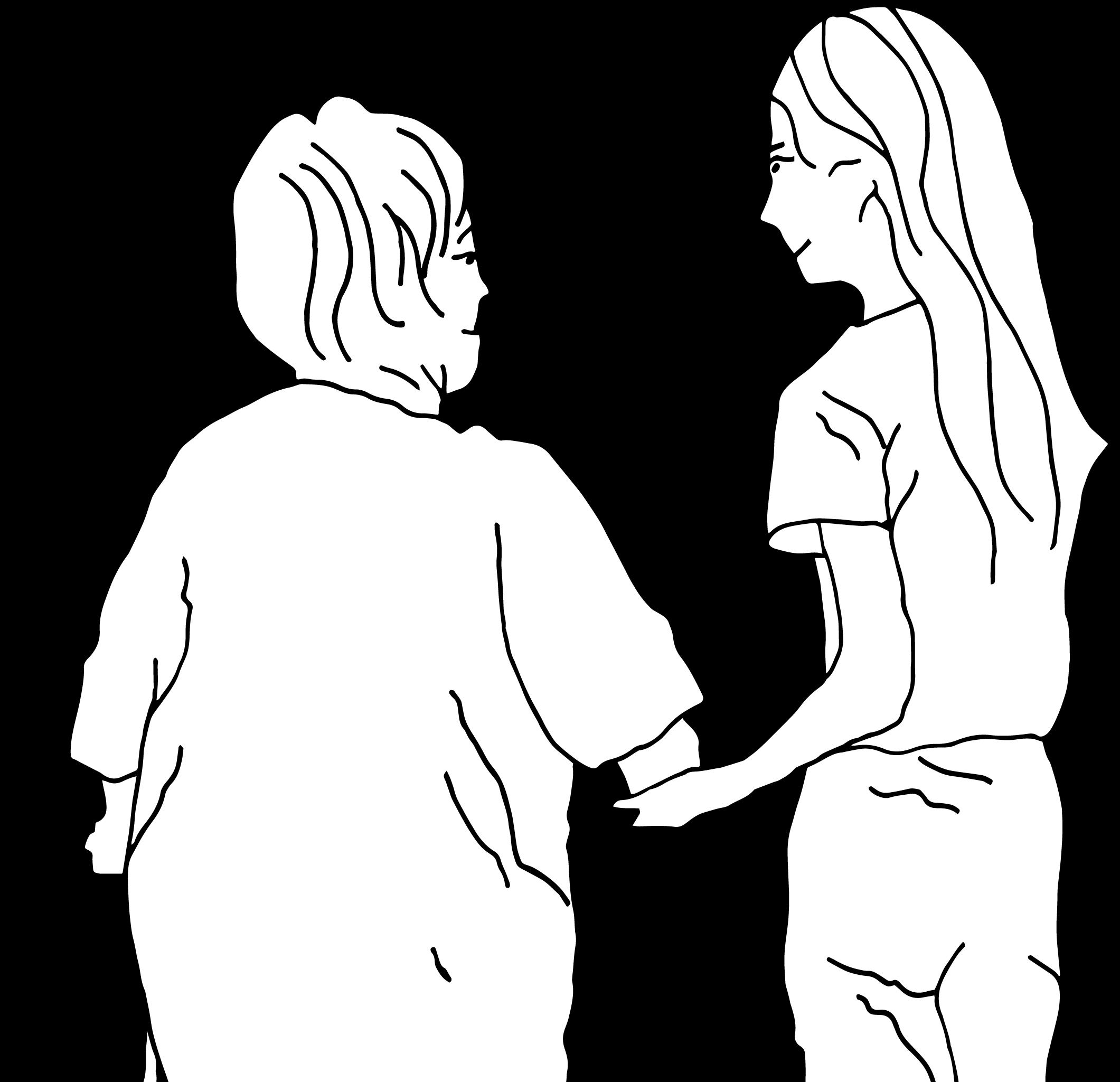
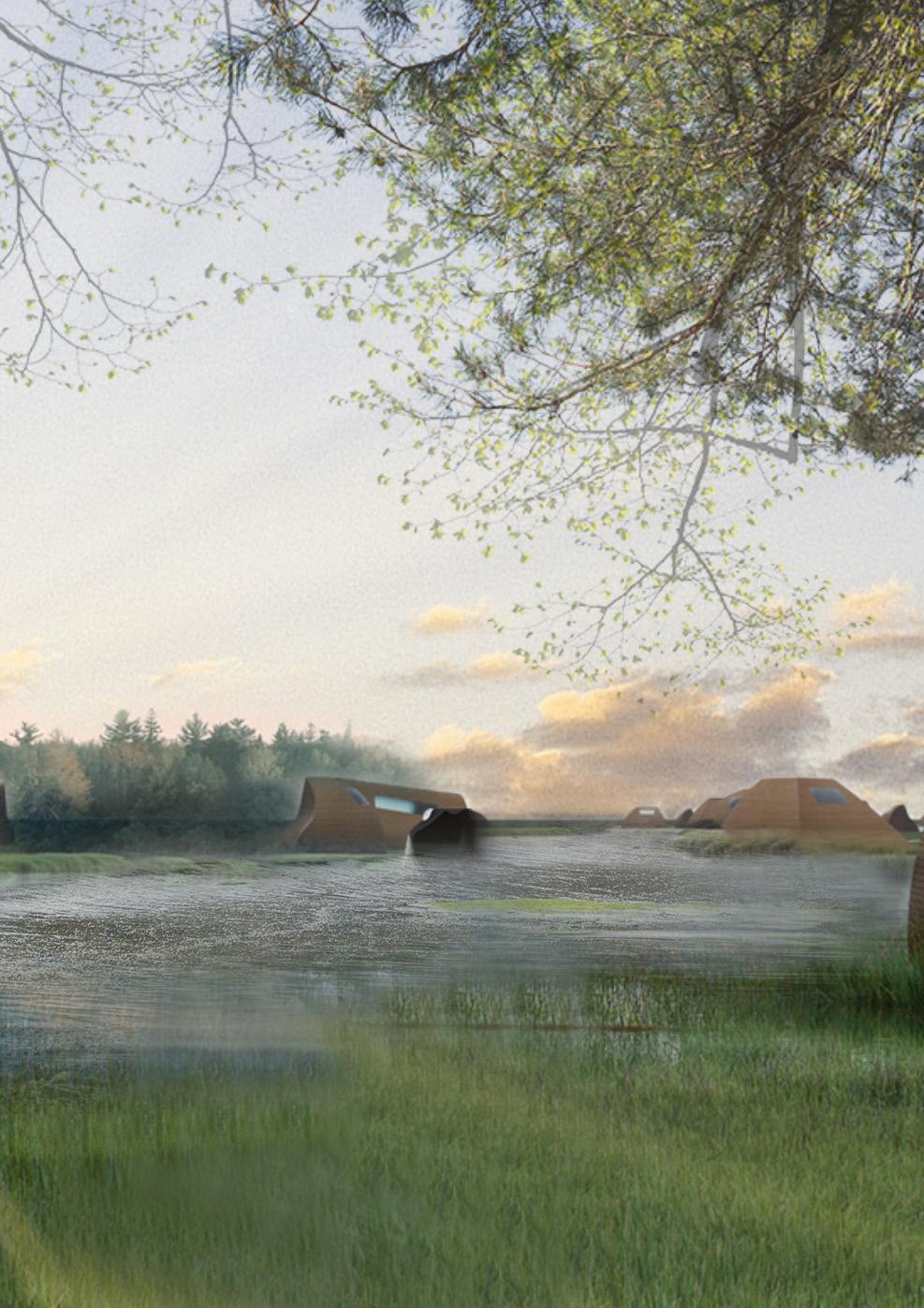
Sarai gently tugs on grandma Nim’s shirt sleeve, careful not to knock her off balance. “Grandma, look at the river, it’s changing colour!”
Together, they fix their gazes on the horizon, knowing what is to come. It has been 10 years since the last great flood began, but Sarai was too little to understand how their world came to be. Not today, today she knows the stories and the magic of the salt water.
In her softest voice, Grandma Nim explains, “Sarai, by tomorrow’s moon rise, the waters will be full and it will be time for you to choose your path. Who and what you want to be until the next flood is entirely up to you.”

Grandma Nim, tired of standing on her sore leg, slips off the edge into the water. Today, she has upper body fins - for on land she feels immobile but in the river she swims and breathes with the same ease as her underwater friends.
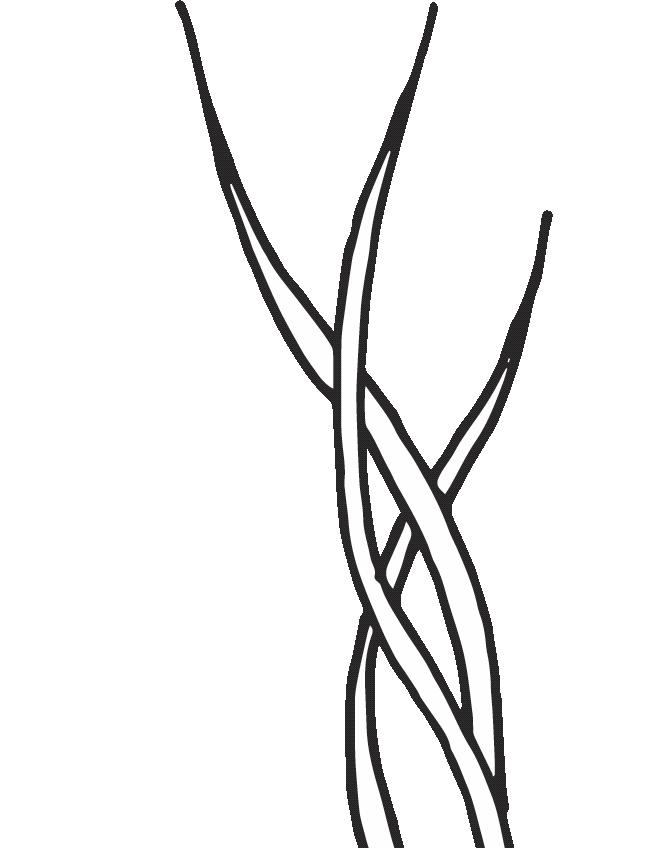
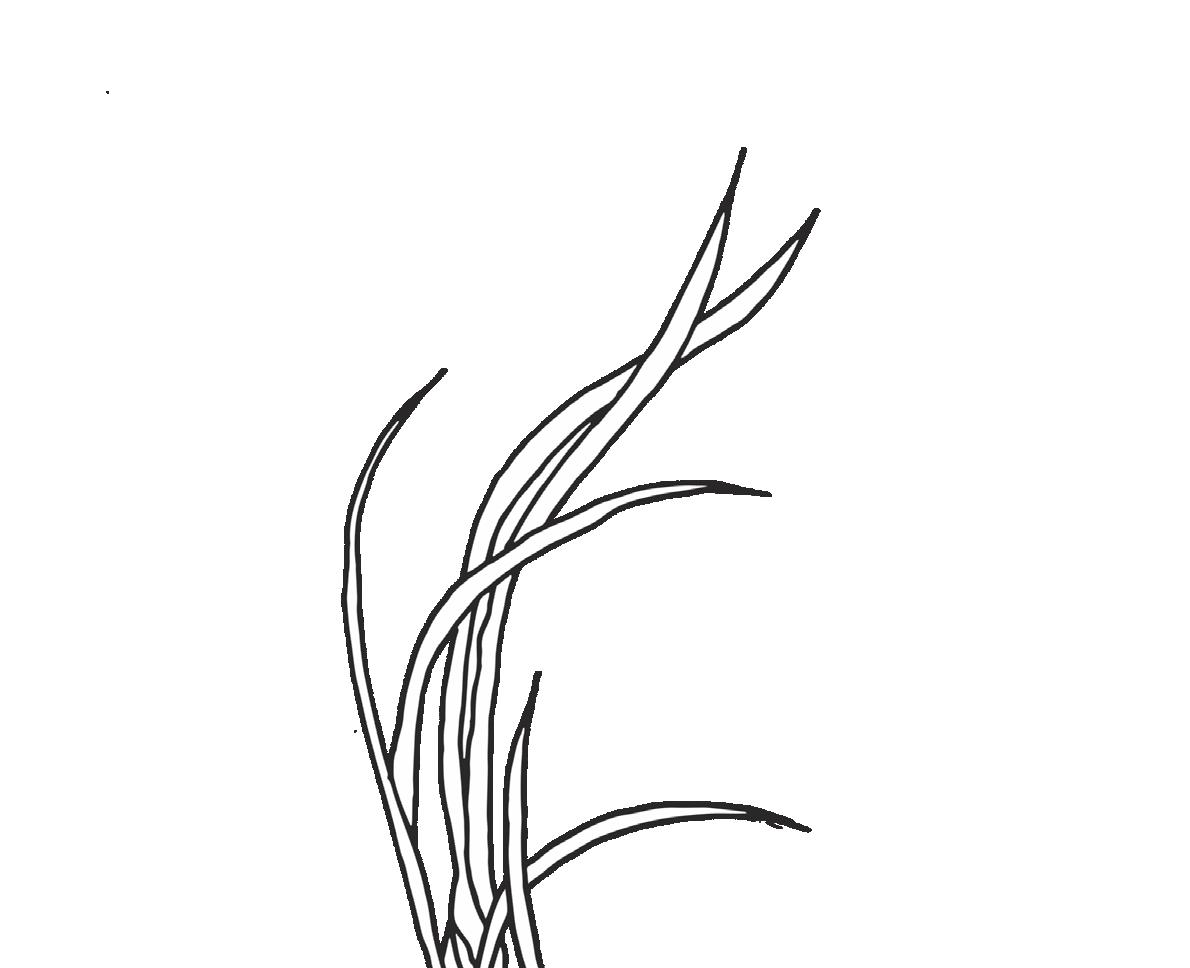
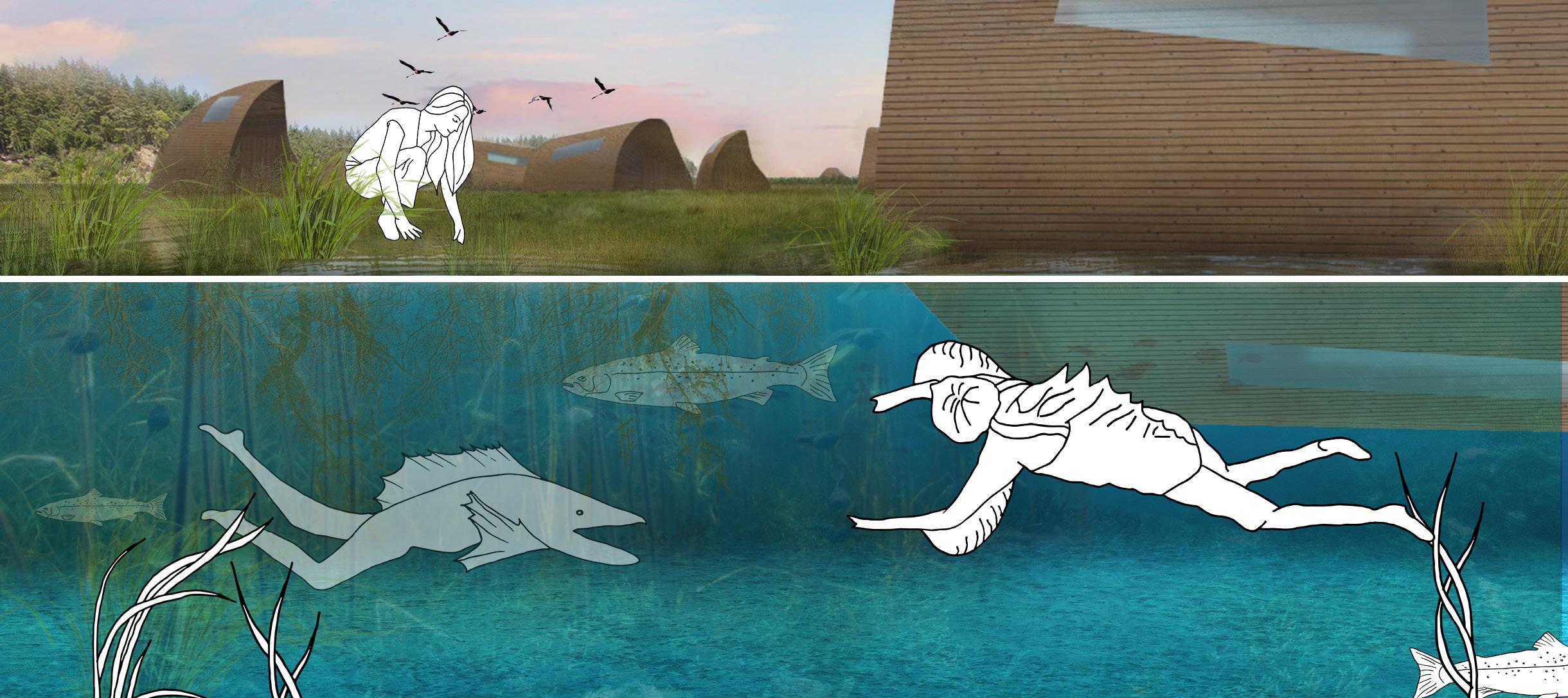
Sarai, trepid and unsure, responds, “Grandma, how do I know what I want to do, and where my place is in our world?”
From the water Nim explains, “My darling, when I was your age I was uncertain too. Our world was new, the change was new, but our ways of living are as old as the earth. My grandma sent me to speak to our neighbours and now I will do the same for you. You must begin by hearing the stories of our people. Listen to their words and eventually you will be able to decide for yourself.”
Sarai sets out for the aquaculture farm behind her house. For as long as Sarai can remember, Wayra has managed the farm and although they see each other every day, this is the first time she has asked her about her journey.
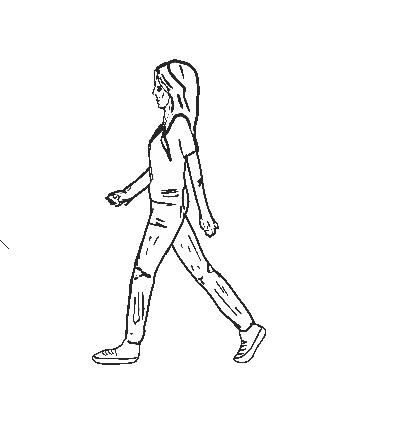
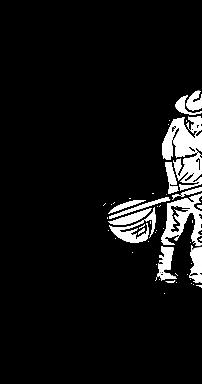
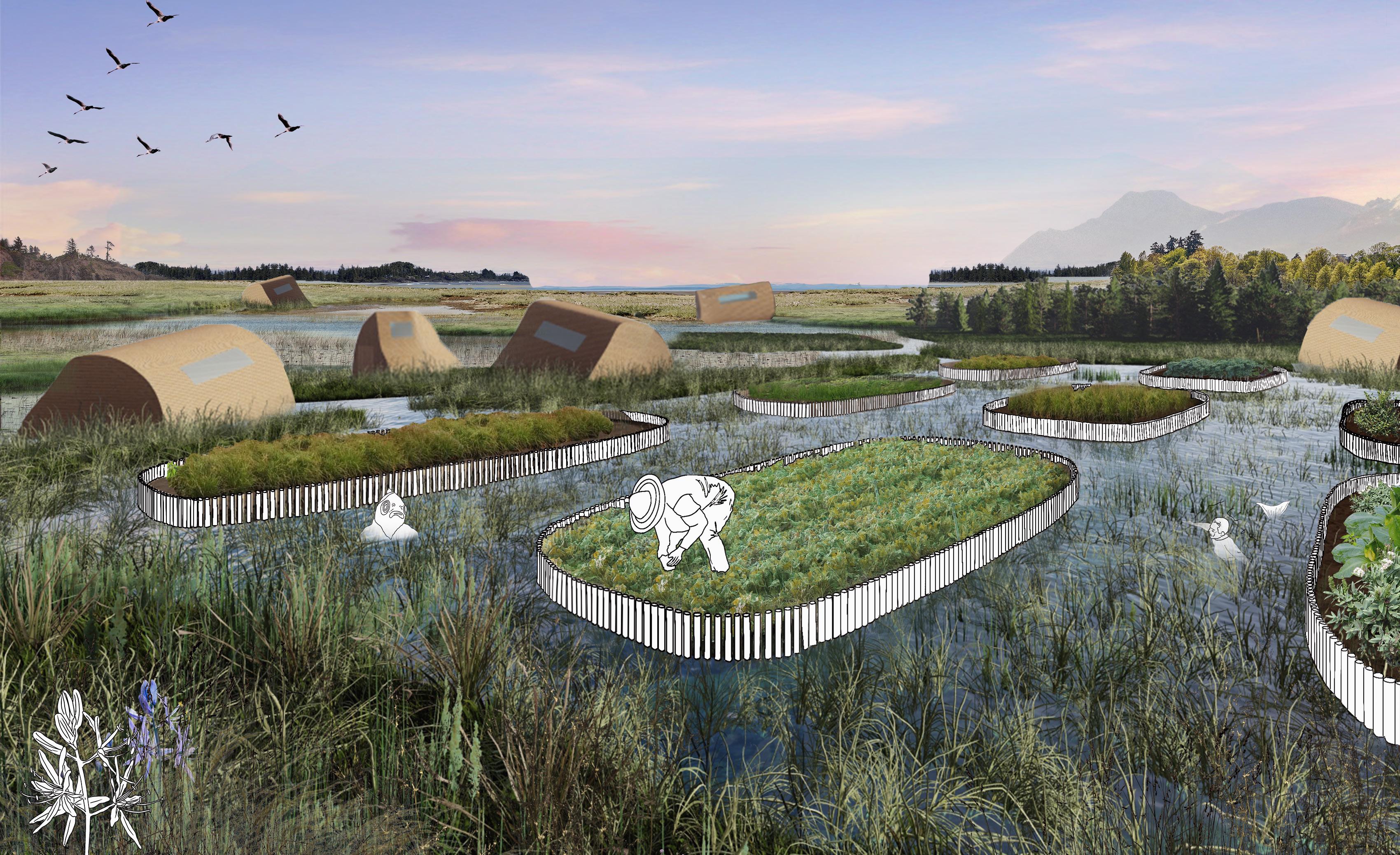
Wayra paused for a moment, chin on shovel to reflect. “We have been farmers for centuries, on water in our native Mexico, as migrant field workers in Vancouver before the floods, and today still. My father showed me the old ways, as did his mother before him, and her father, for centuries.” Sarai sighed….
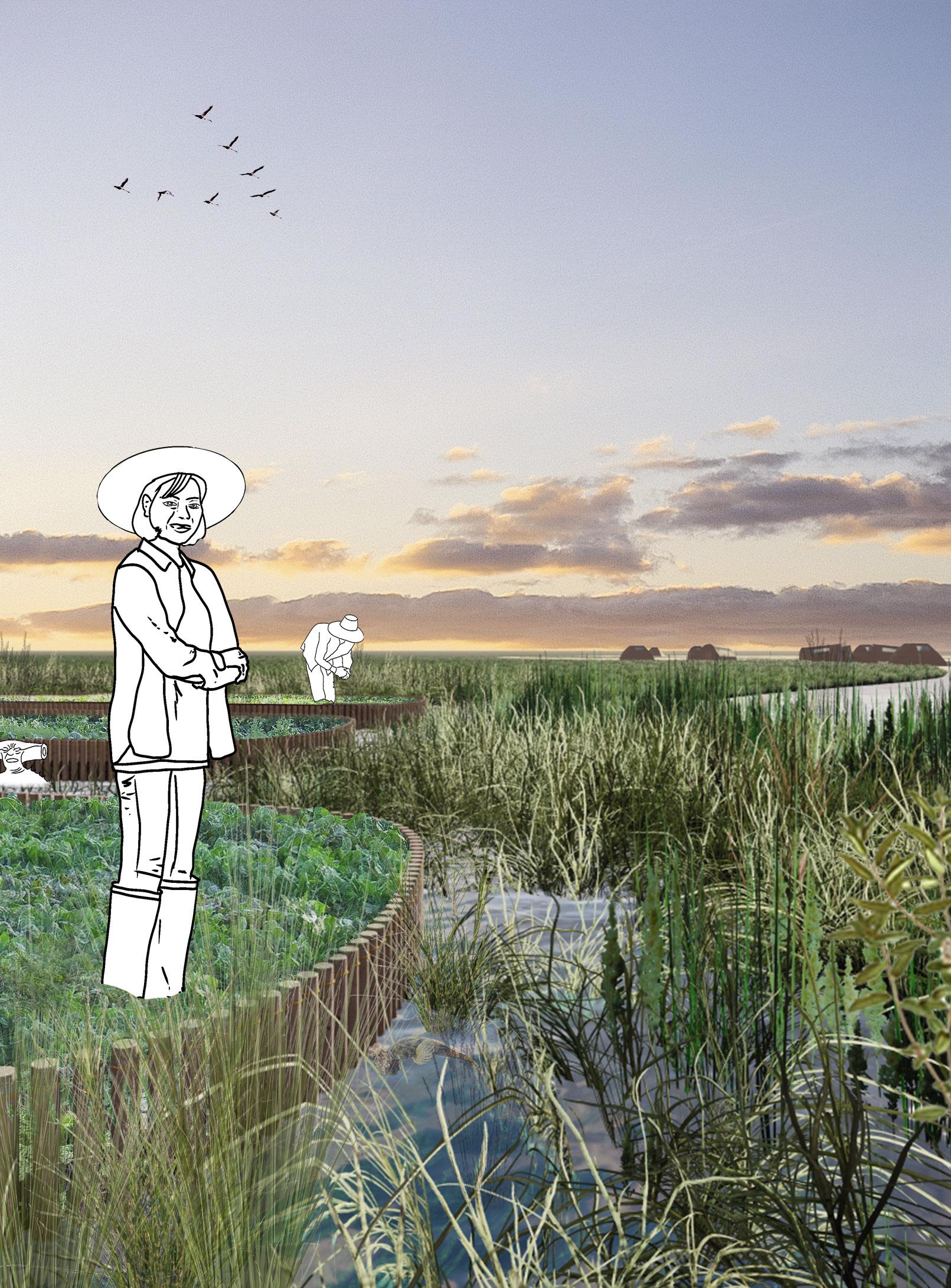
Wayra continued, “It feels like it was always meant to be this way, fusing our traditional knowledge to create a life for us again.“ Although, my father always loved the water more than anything else. He jumped at the chance to work below but I prefer to be up here with the birds.”
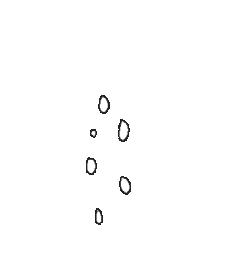
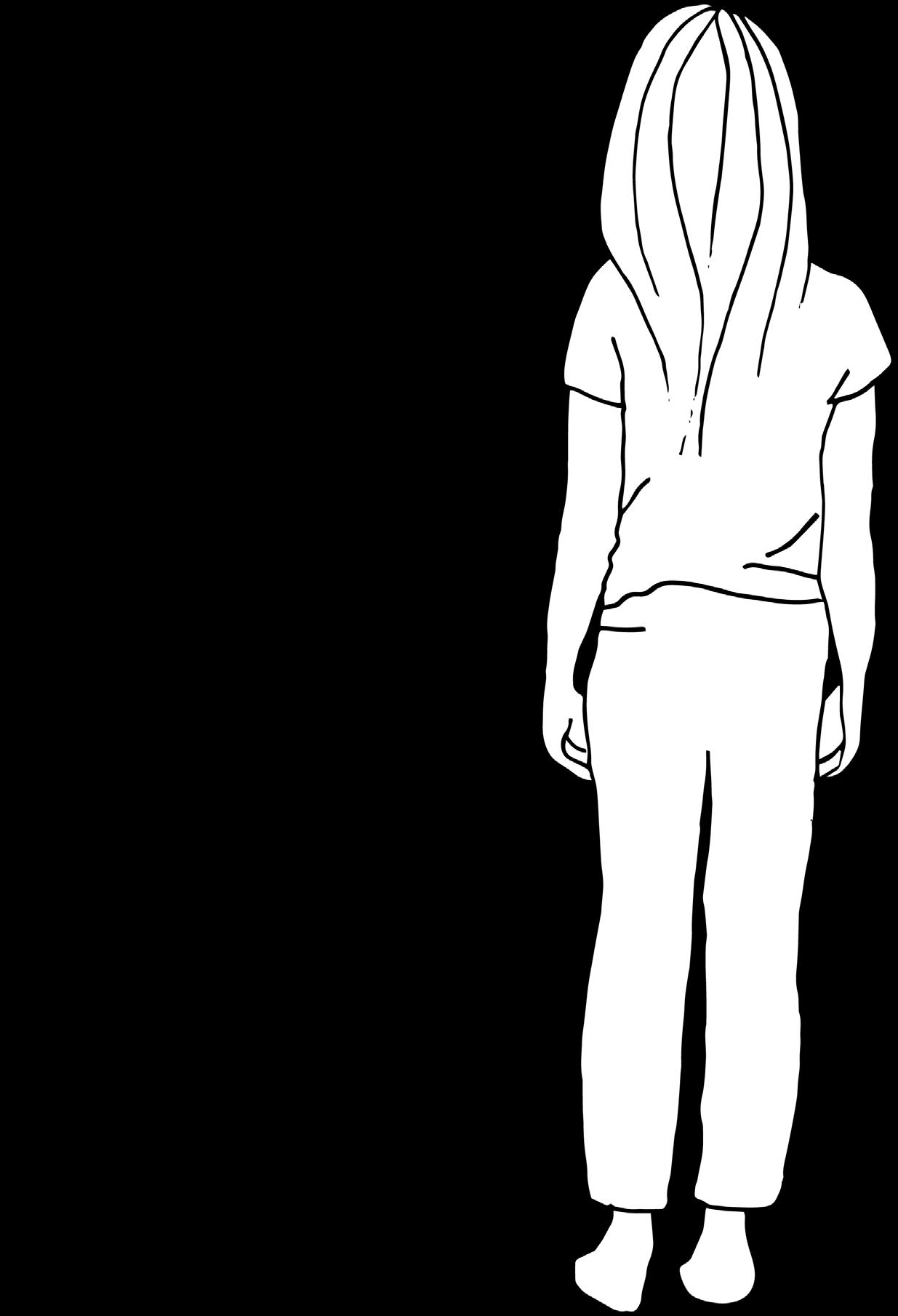
Across the waters from the river settlement, Sarai paddles to the floating wetlands. She often comes here to view her friend Malo, the heron who stewards the wetlands.
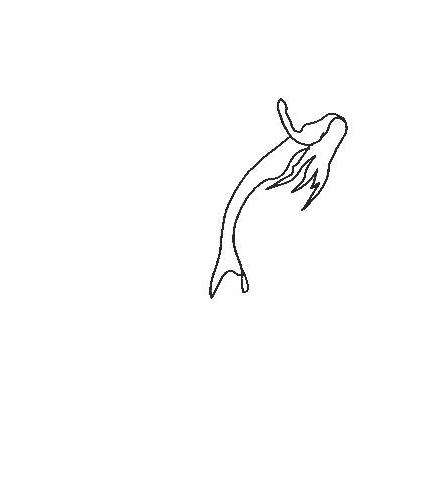

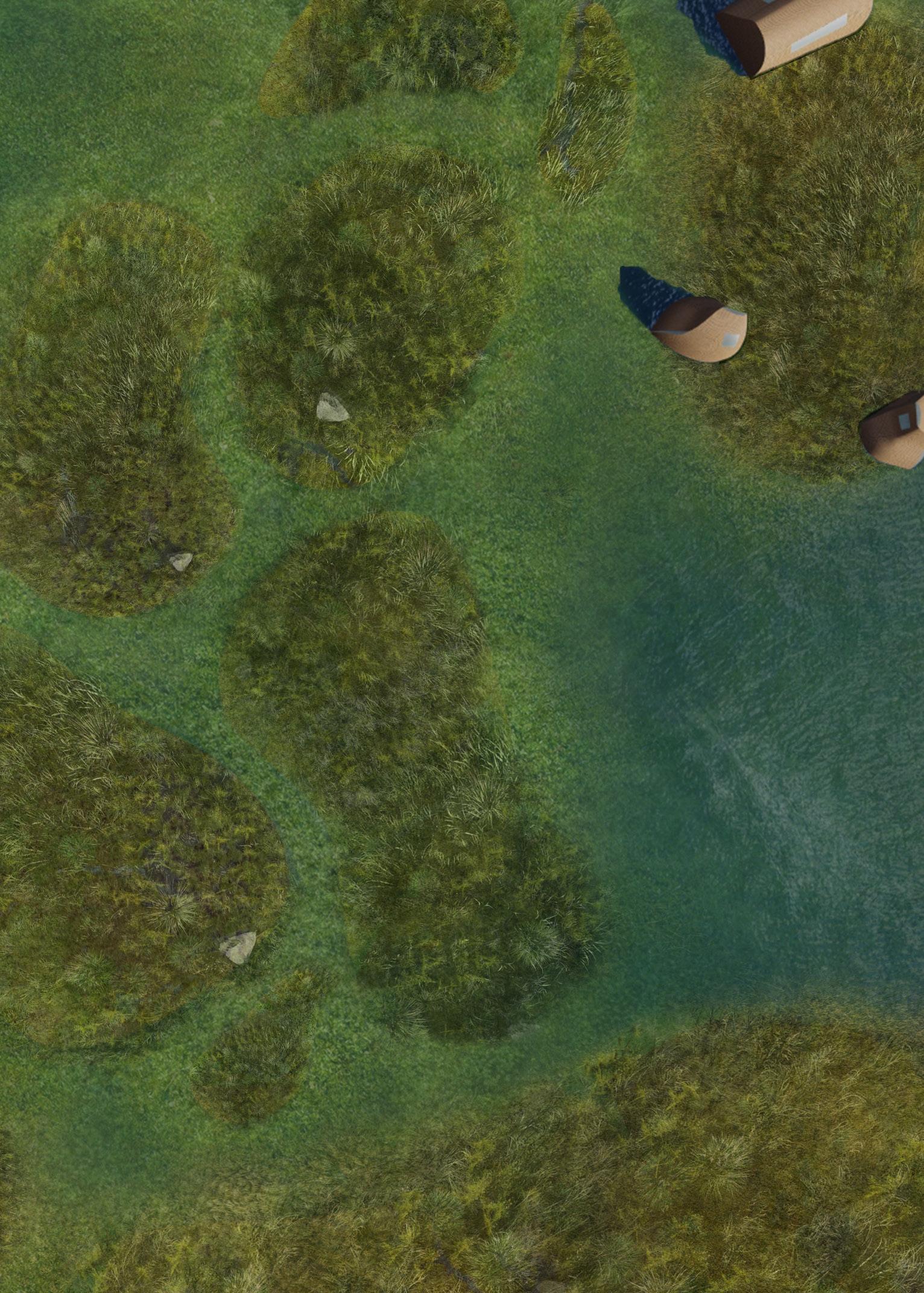
“Good Morning Malo! How was your catch today?” Malo, full bellied and gleeful, raises his sleepy head. “Plentiful, the rivers are so full, and the fish so salty, I’ve eaten enough for us both!”
Malo inquires, “What brings you to our waters today Sarai?”. Sarai replies, “You know why I’m here Malo! The flood will arrive tomorrow and with it the salted waters. Grandma says it’s time to choose my future and I don’t know who I want to be yet.”
“Sarai, it is perfectly okay to be unsure, this is part of your journey. But perhaps a visit to the celebration grounds might help you. The magic of the Enchanted Forest always lights the way for us.”
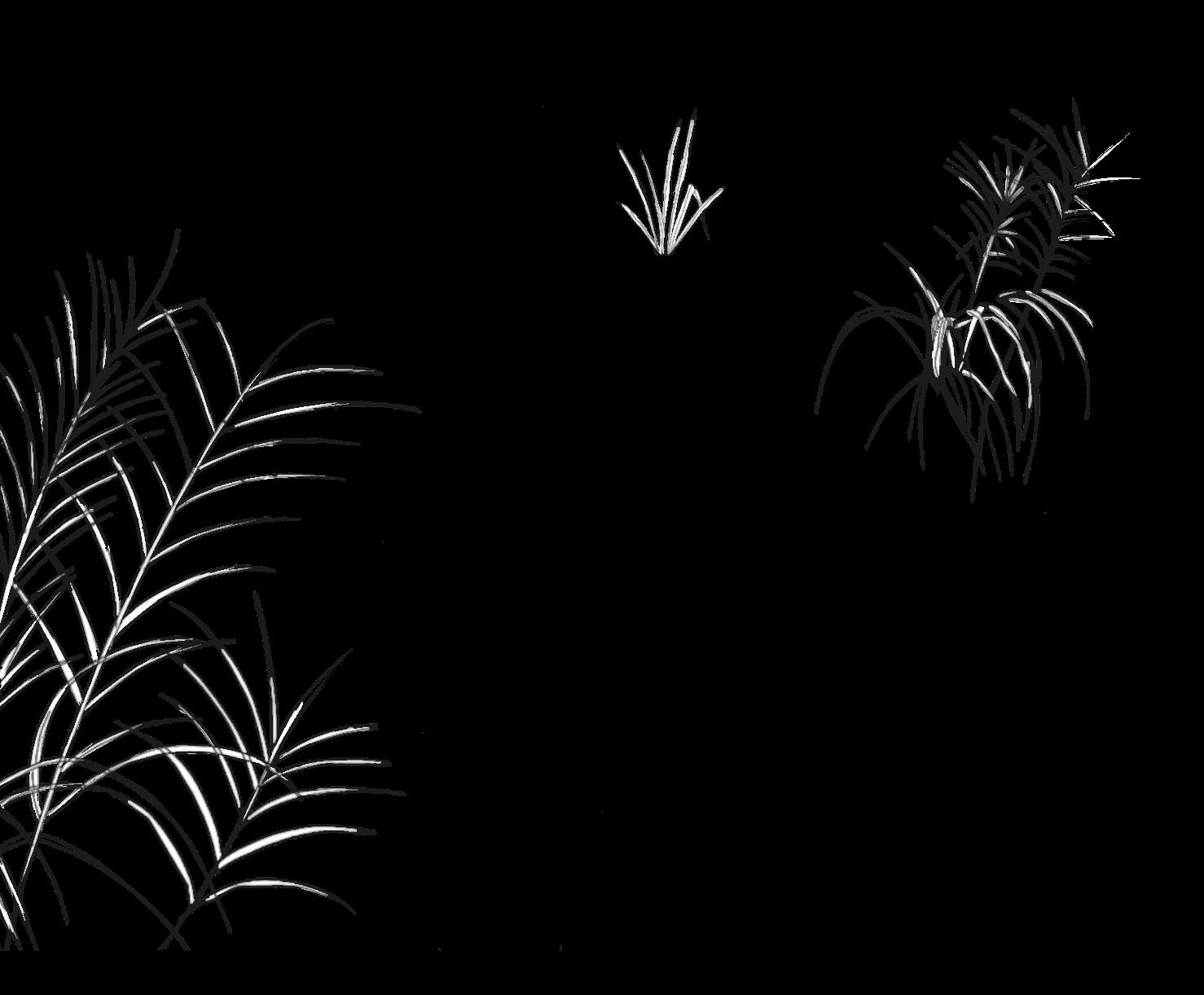
Malo was right, the forest is exactly where she should venture next. Sarai makes her way to the root bridge that her ancestors built for when waters were low.
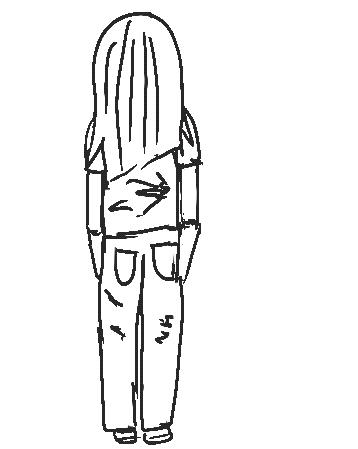
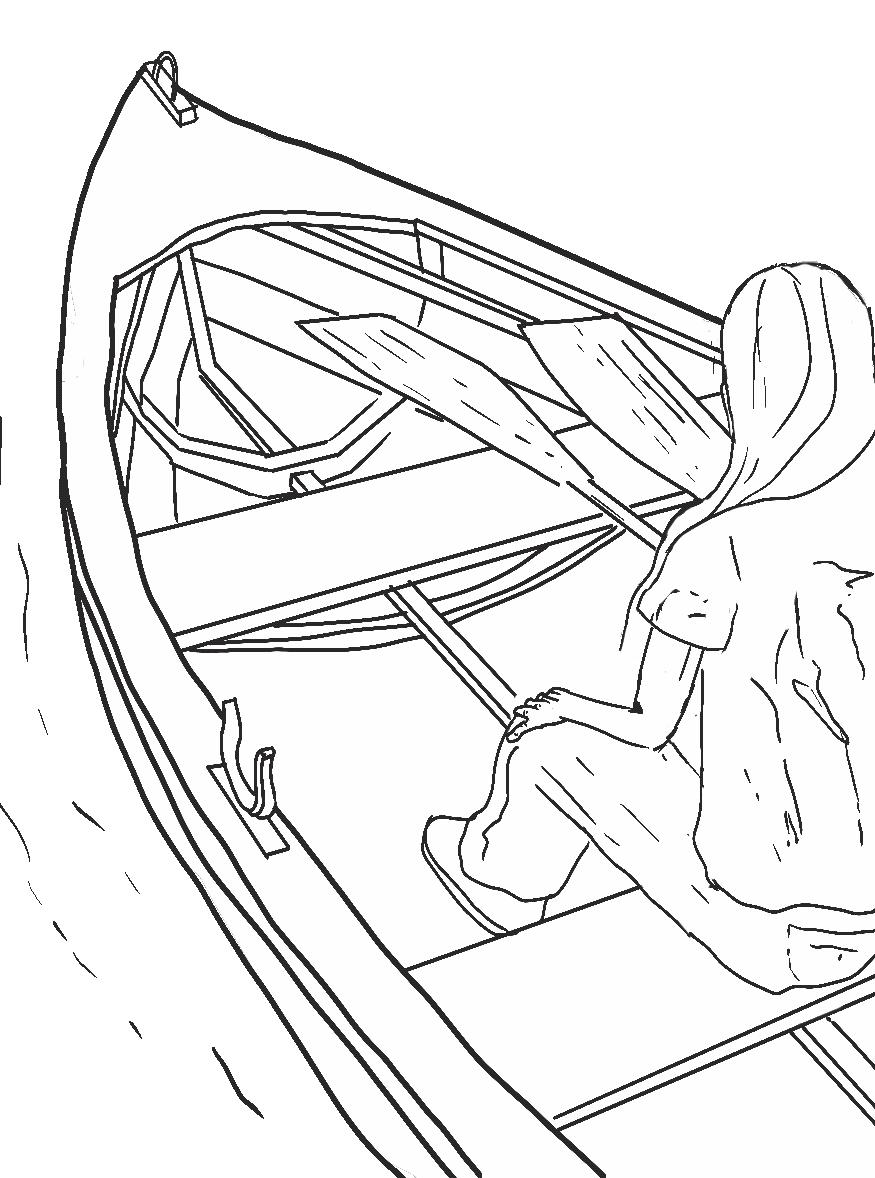

Sarai recalls Grandma Nim’s bedtime stories. She used to say that before the floods, the forests here looked much different than they do now; that they were the darkest shade of green and cold to the touch. The bark looked like rope and the floor was so soft you could sleep on it. Most of the forest creatures even had hoofs and feet then! But as it got warmer, the oldest trees, you know the ones that slept for millions of years, began to live again. And the creatures… well…. they’re all shapes and sizes now.
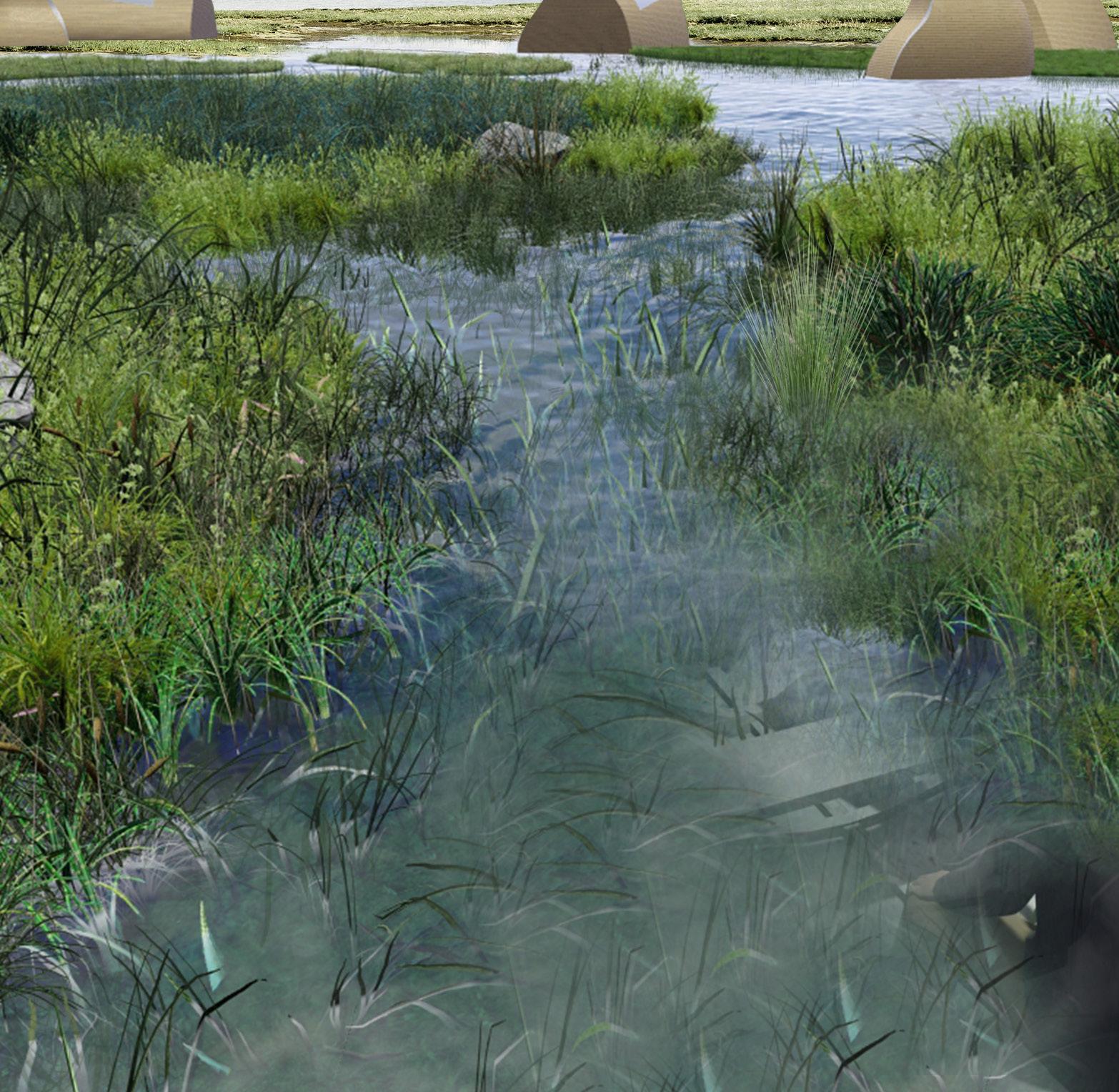
Upon reaching the other side, Sarai encounters Takoda. They are busy collecting wood and bending roots and branches for the celebration tomorrow. The knees make it impassable for boats and only those with adaptations can pass. Sarai gets as close to the edge as she can, careful not to fall in.
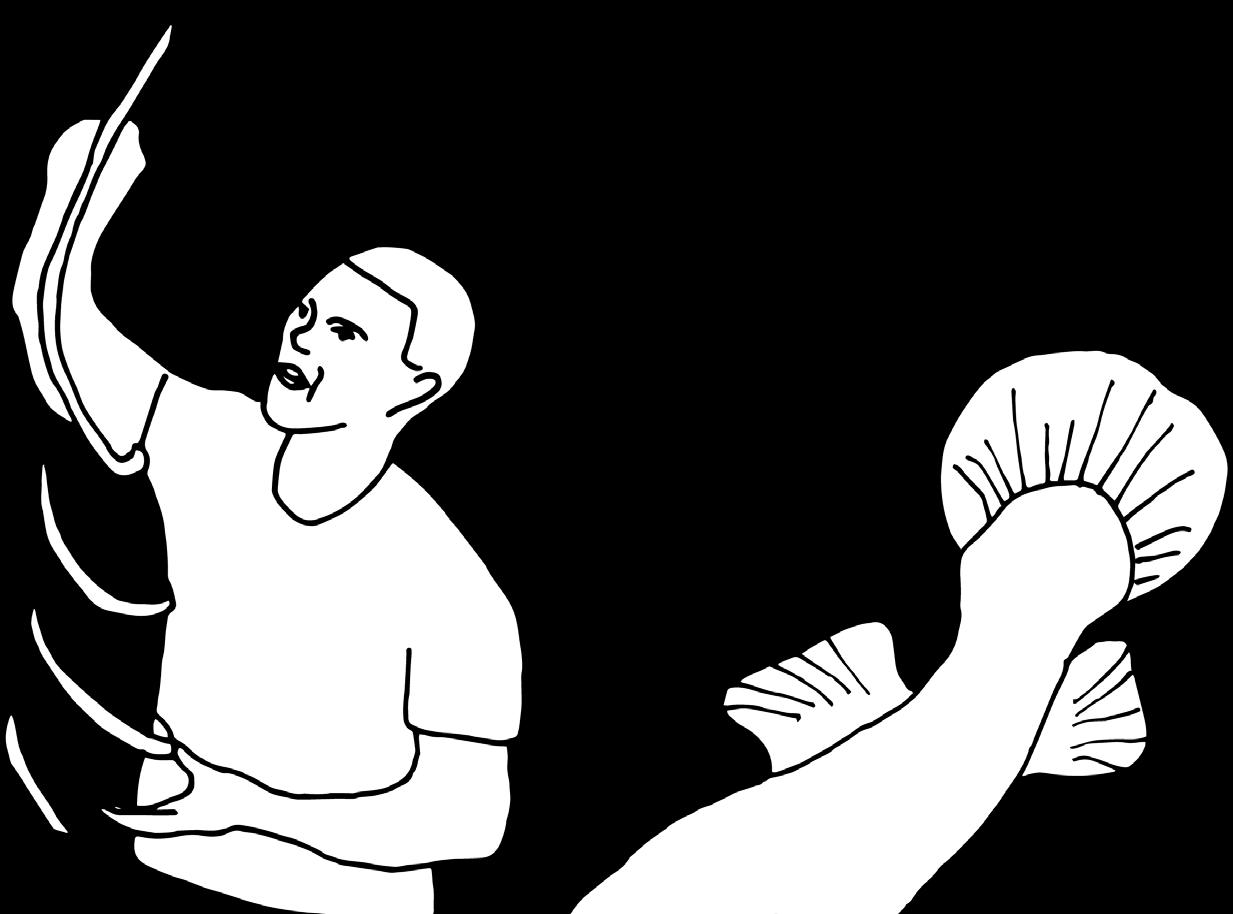


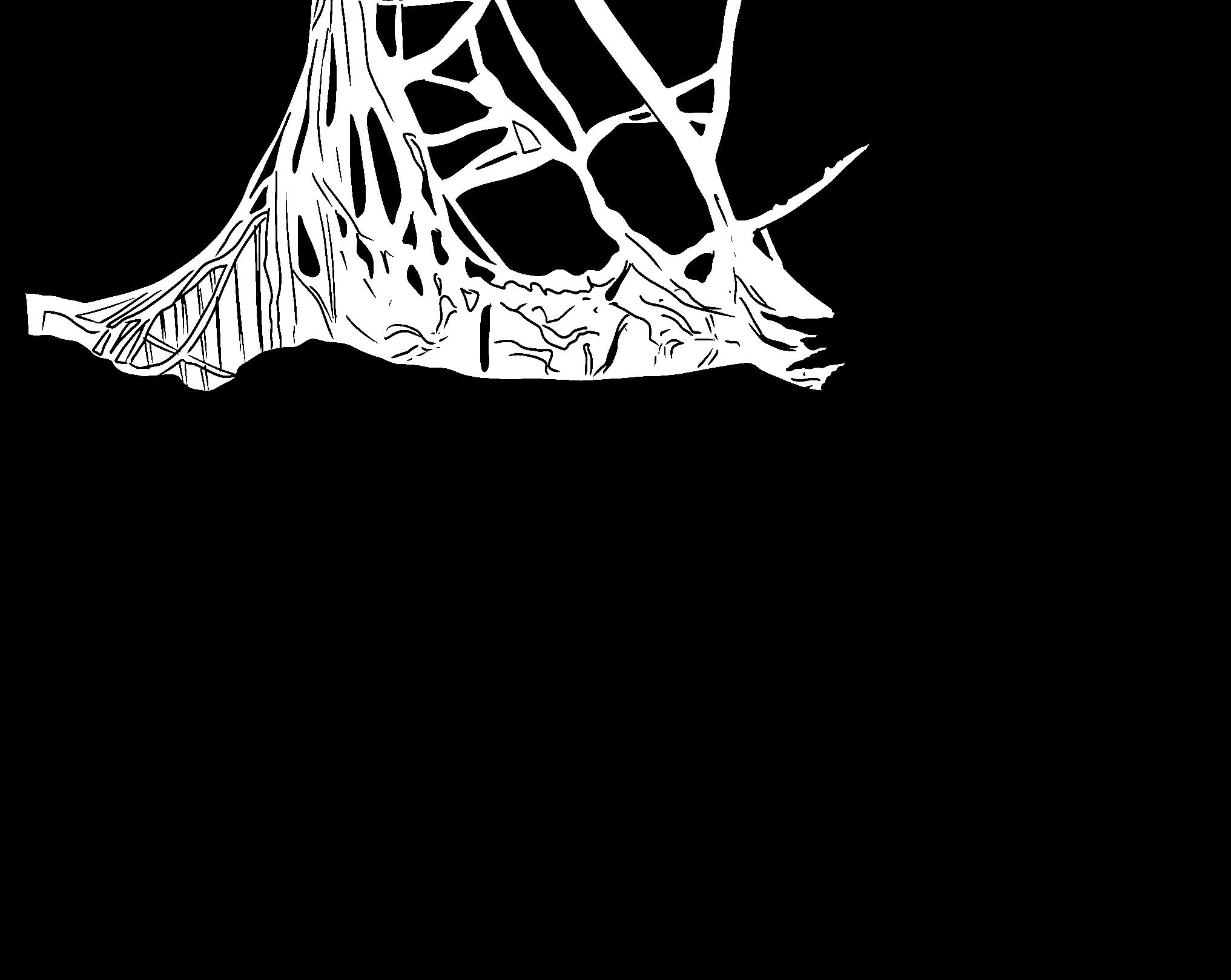
Curious about her impending choice, she asks Takoda, a Musqueam wood bender, about his life. Takoda tells her, “My people have lived through many great floods, and have stewarded the forest since before time in mind. Much has changed about this place but our beliefs have not. They are deeper than the flood waters and my adapted body connects me to this place and my people in new ways. I have a feeling it will do the same for you Sarai!” He thanks her for her visit and reminds her how busy they are preparing the festival lamps for tomorrow.
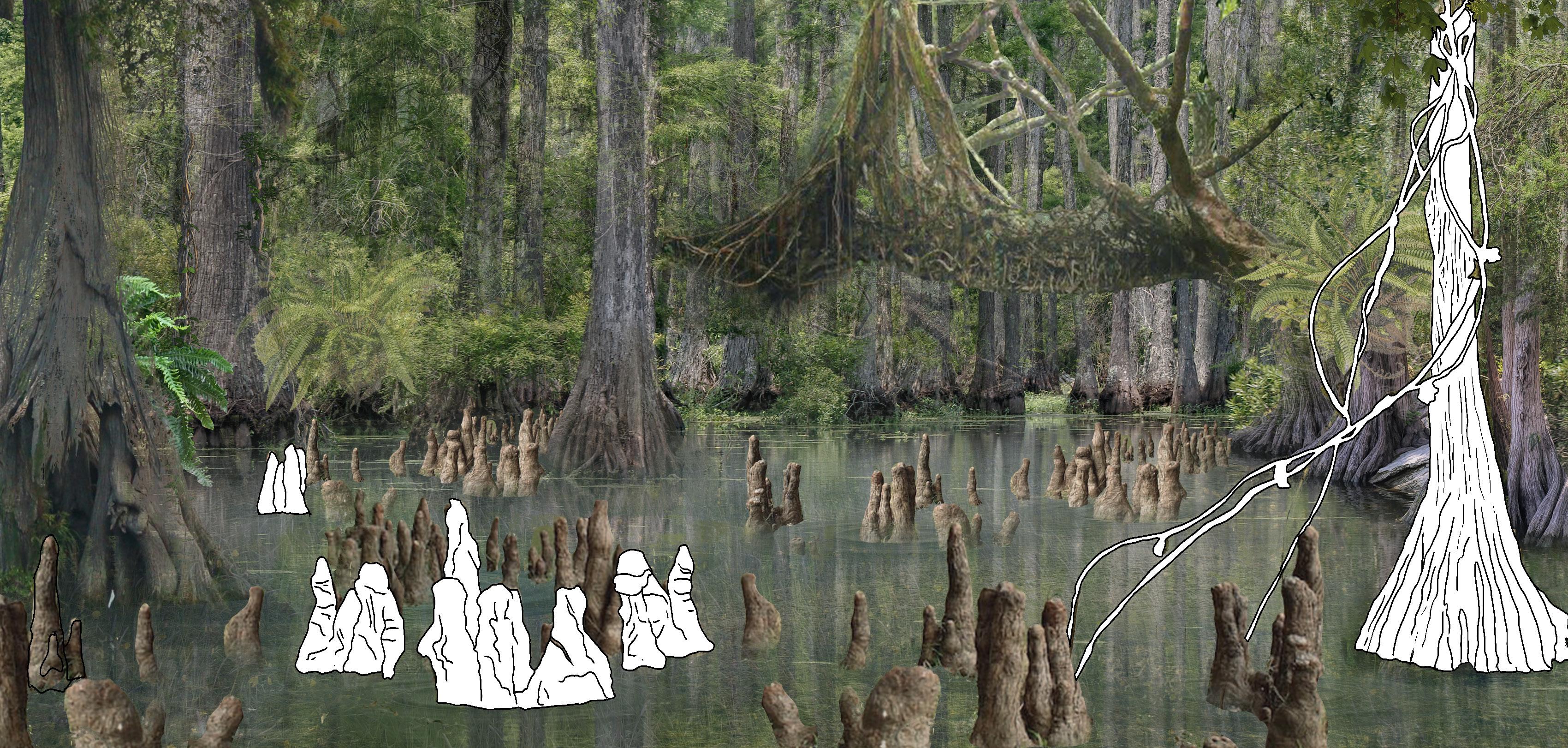
Sarai wanders upland to where the other wood benders are. Of course, not everyone has a tail, and some - like Wayra and Kateri - prefer a life on land. Kateri is busy at work, bending saturated branches for the bioluminescent lamps.
Before the floods, he lived in the mountains putting to use the woodworking skills of his grandfathers. When the floods came, he knew he could help so many others and he relocated to the river settlement. He prefers the quiet of the forest and Sarai is careful not to disturb him.
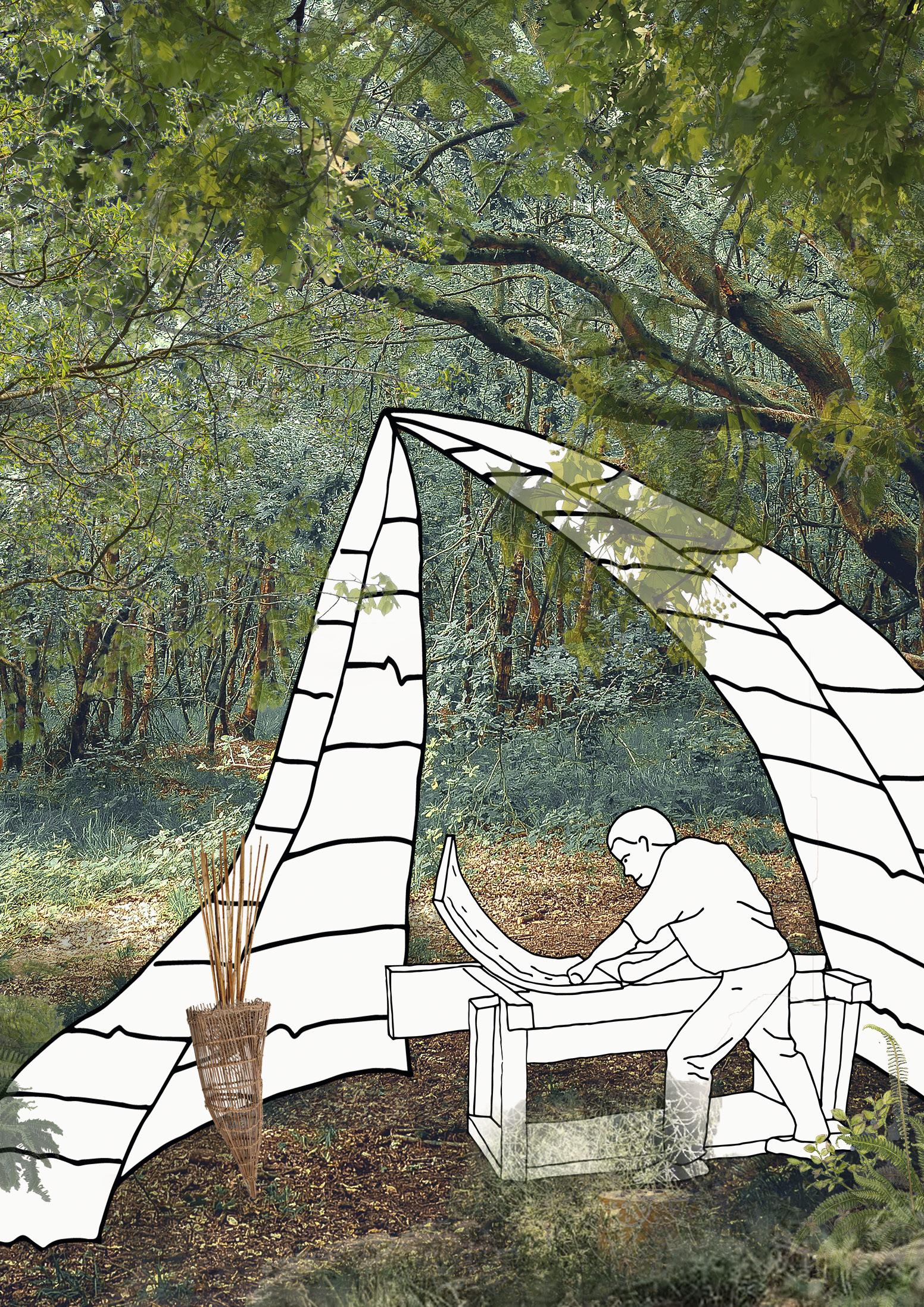
As the afternoon darkens, Sarai is quick to return home, tracing her steps back to the boat. Before stepping off the bridge she thinks to herself, this place will be so different tomorrow.

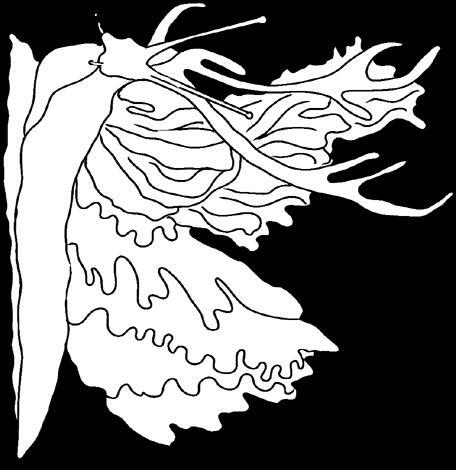
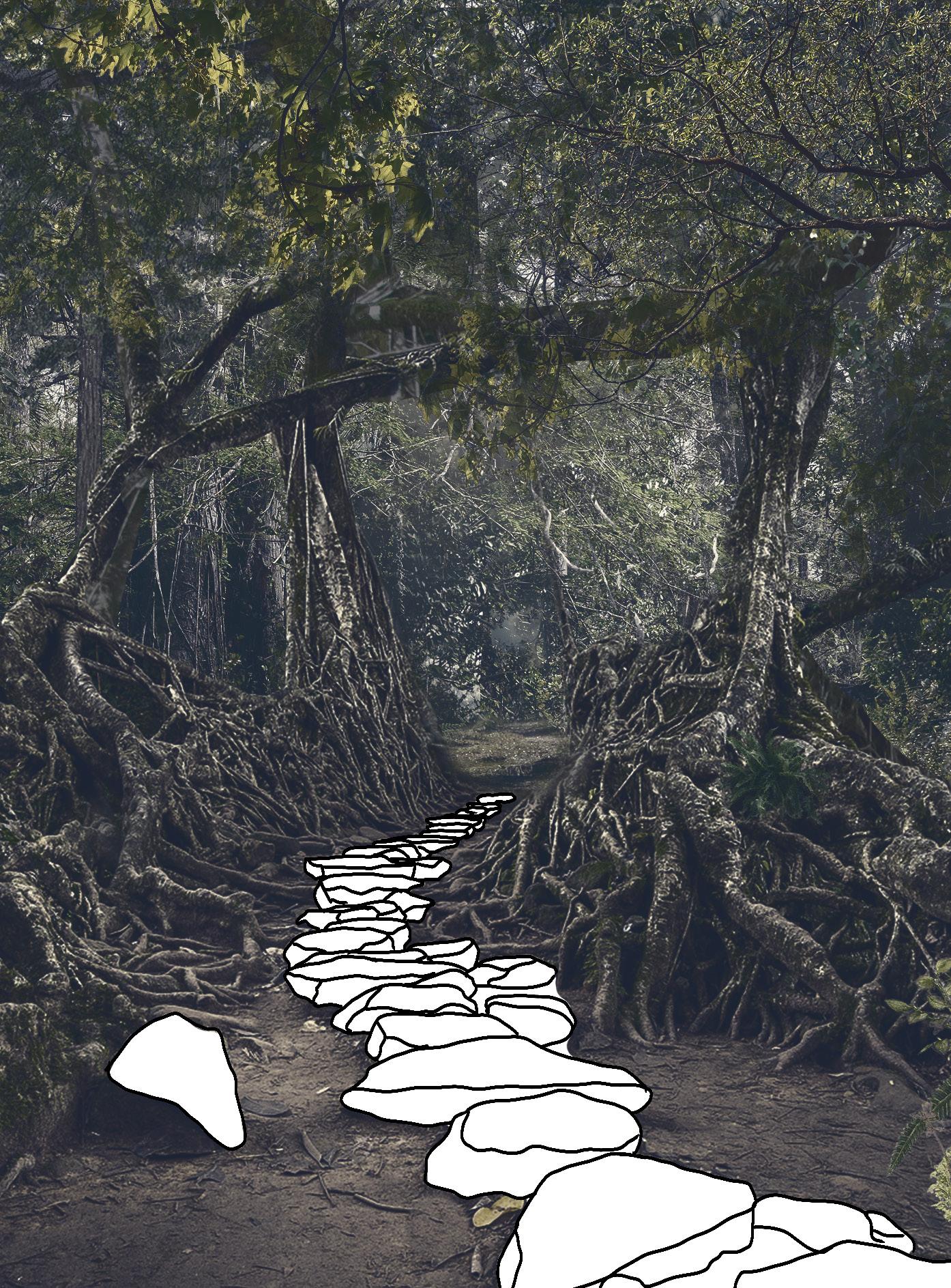
Half past 8, Sarai arrives home. And for the first time since childhood, since the last flood, the family’s lanterns are hung empty by the door signaling the salts arrival. Excited, Sarai looks around and begins to see the night waters run a sparkling blue. Grandma Nim calls it bioluminescence, the magic of the salt water, when the river blends with the sea.

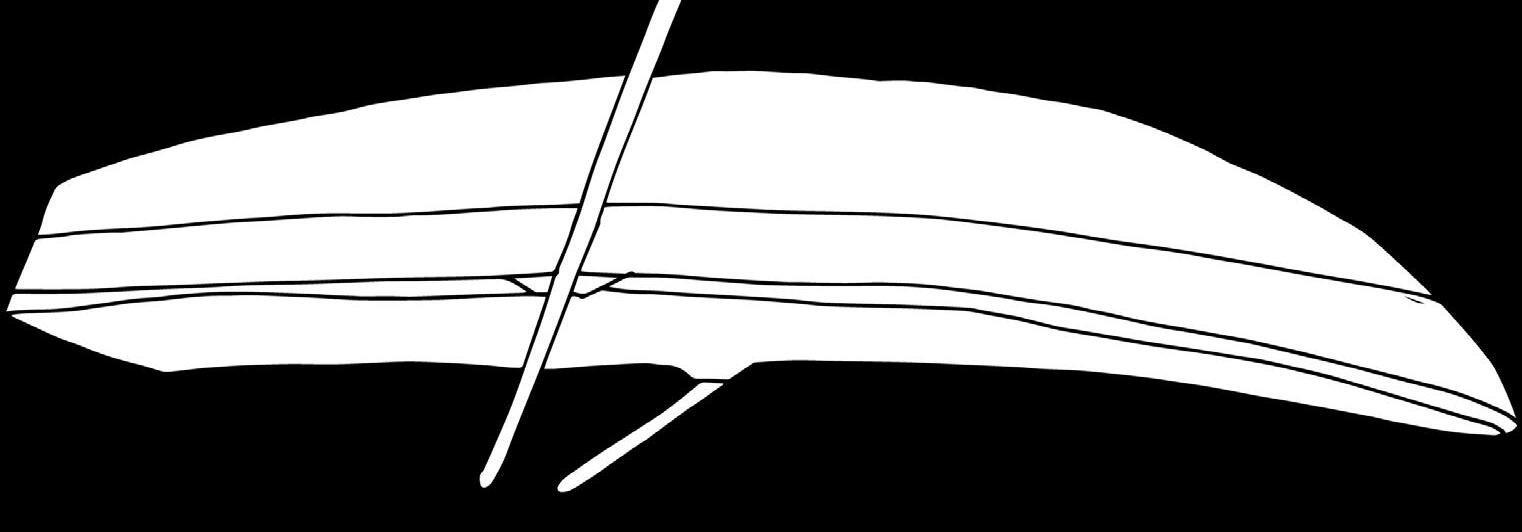

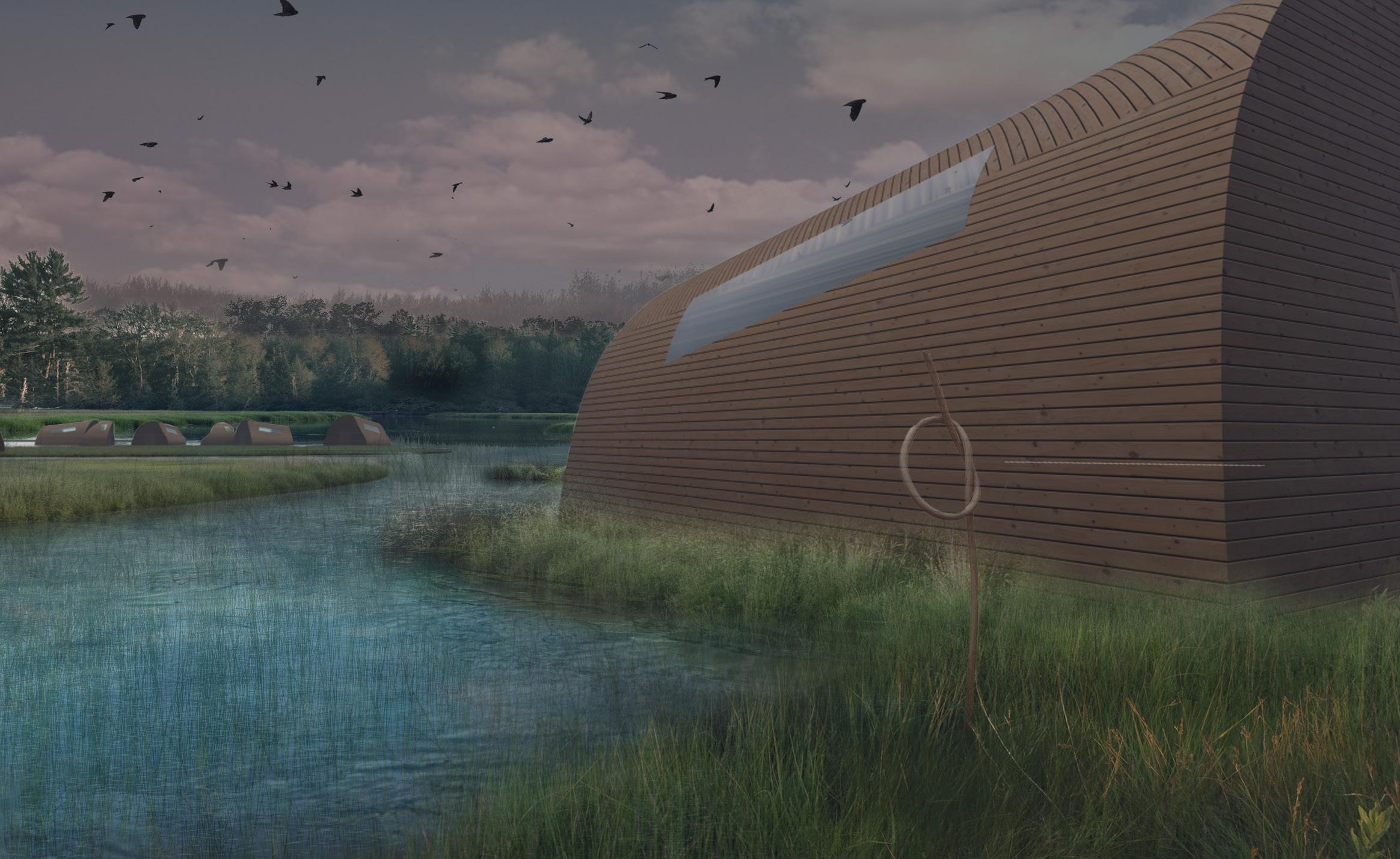
Within moments, Sarai is fast asleep. She lies in the glow of the moonlight and the sparkling waters and is swept off into a dream. The day’s events run across her mind and she envisions herself in a change, swimming around the room just like Grandma Nim.




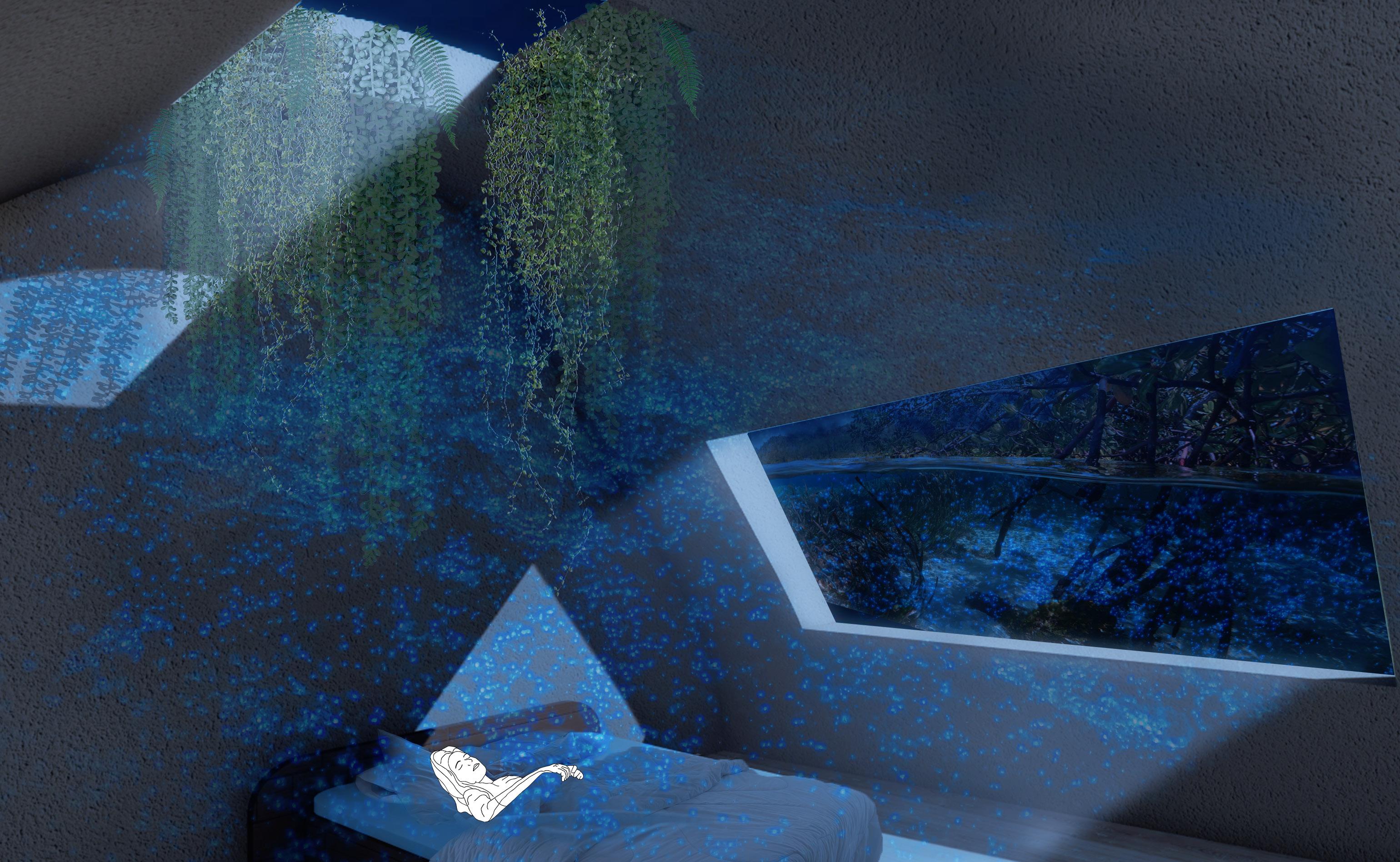
Sarai wakes up refreshed, her nights sleep has helped her imagine what her place in this world might be. She paddles eagerly towards the river mouth excited to talk to more community members and imagine all the possibilities her future holds. Her first stop is the open water of the eelgrass garden, to see Mato the lead harvester.
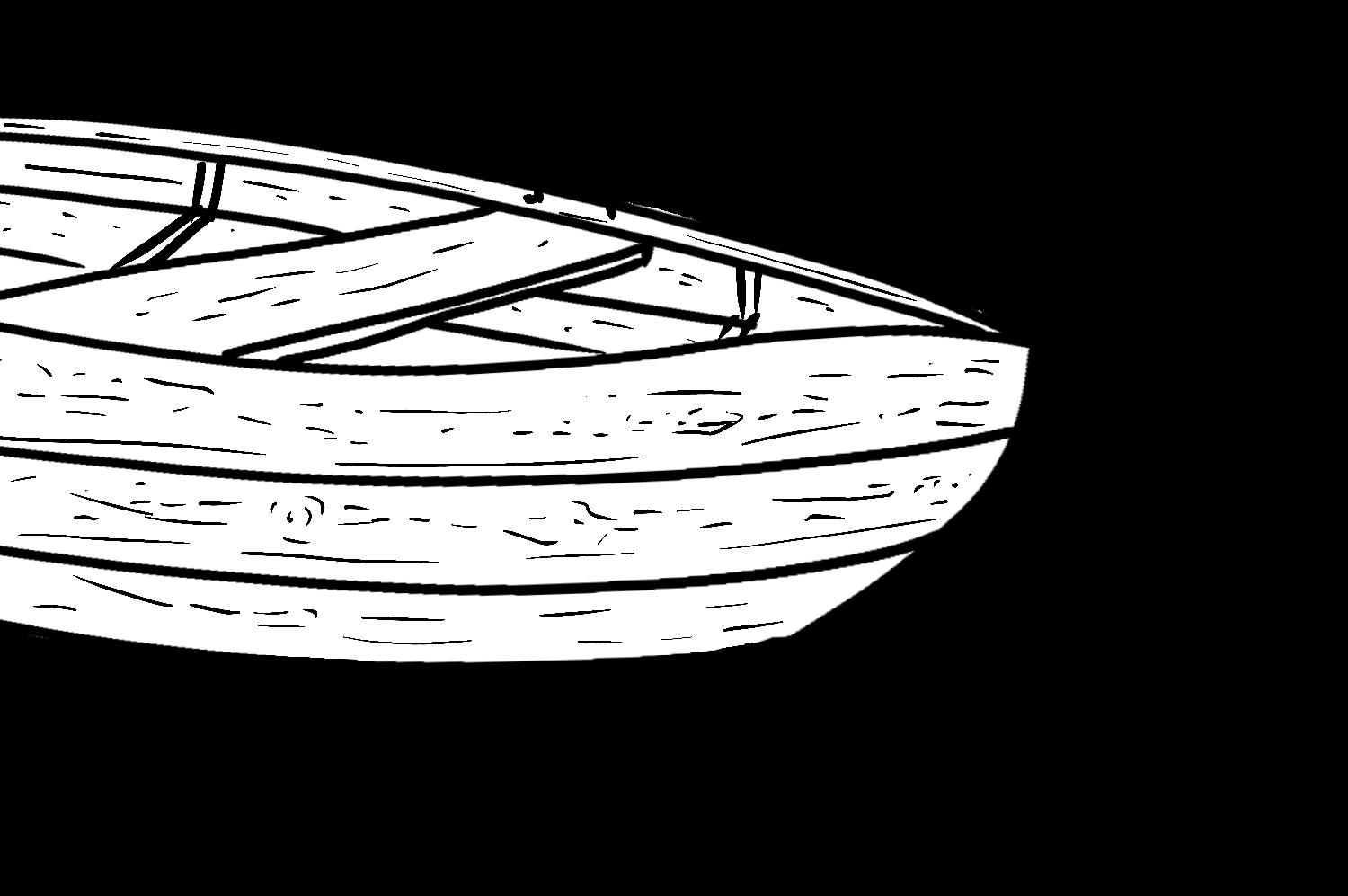
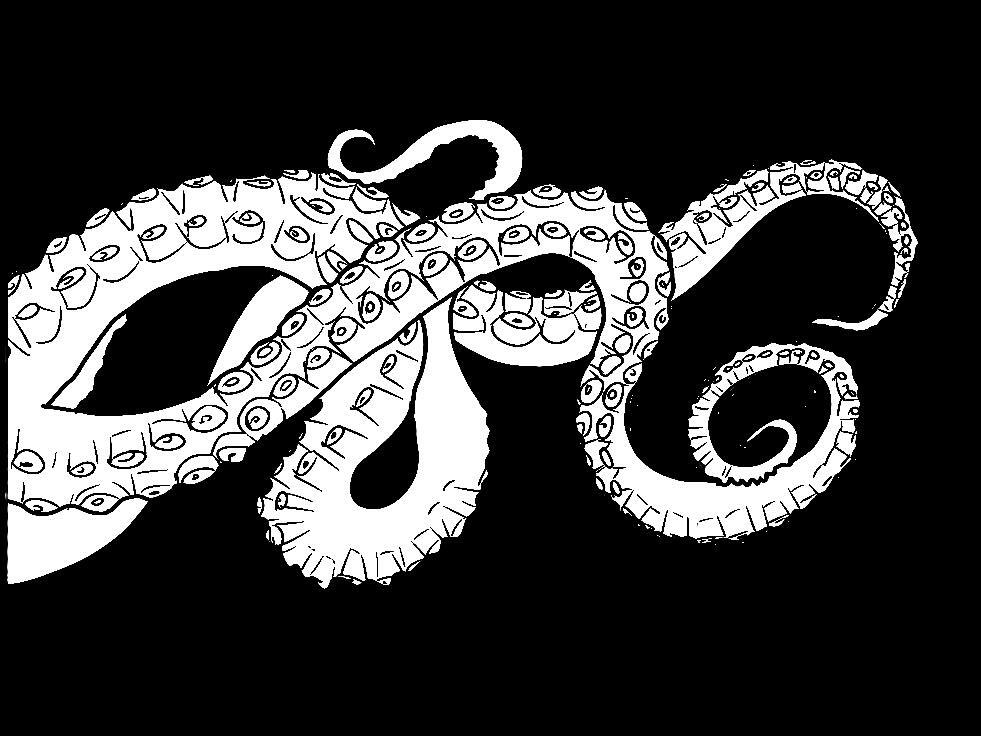
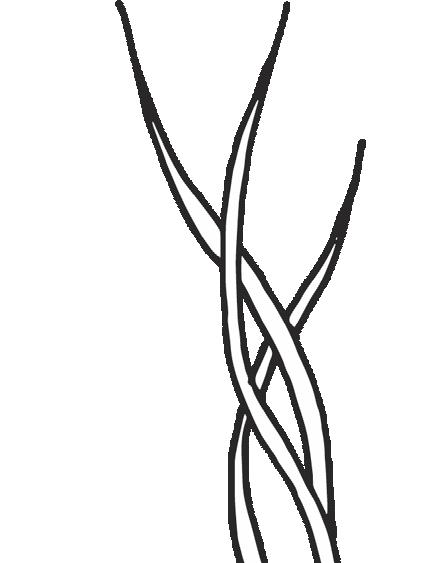
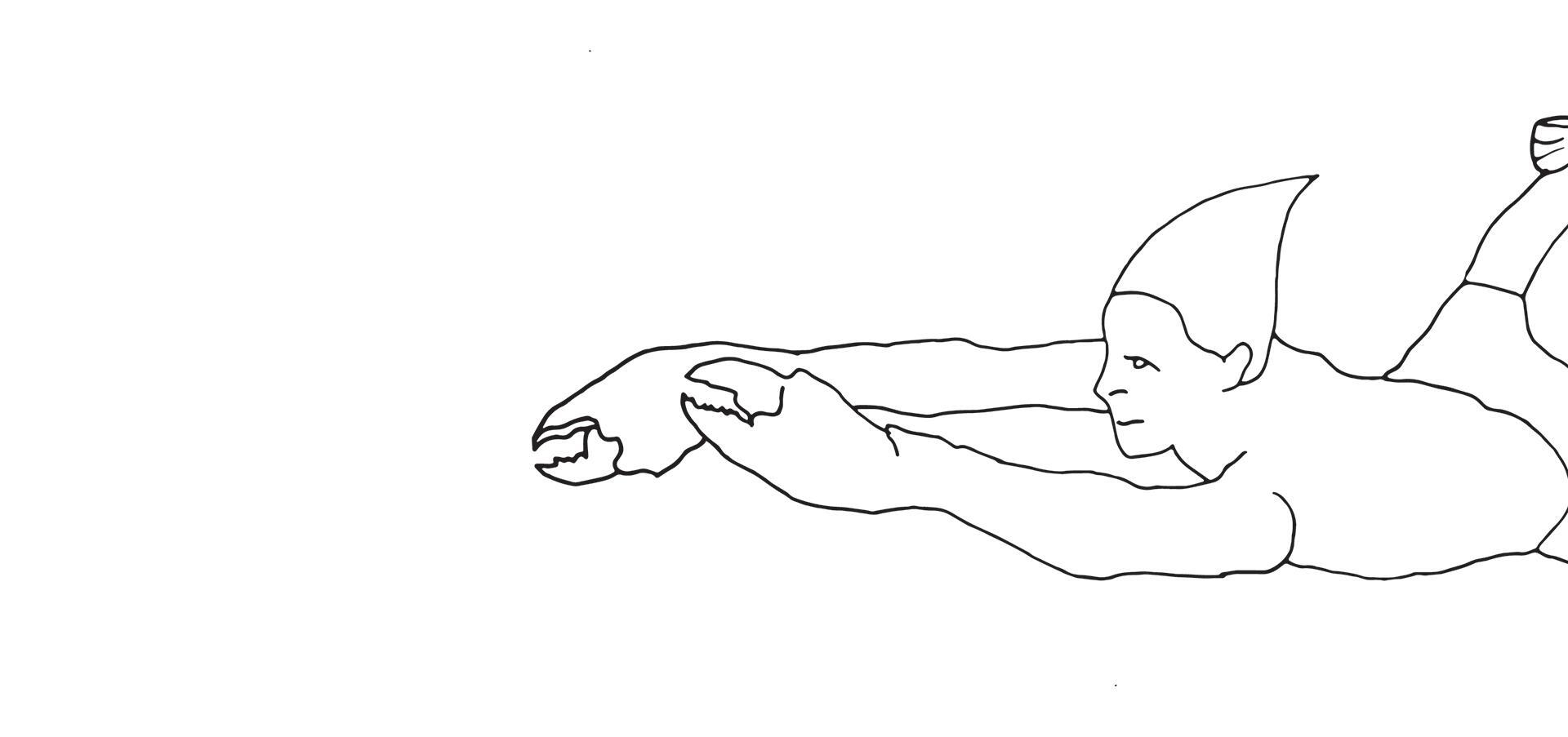
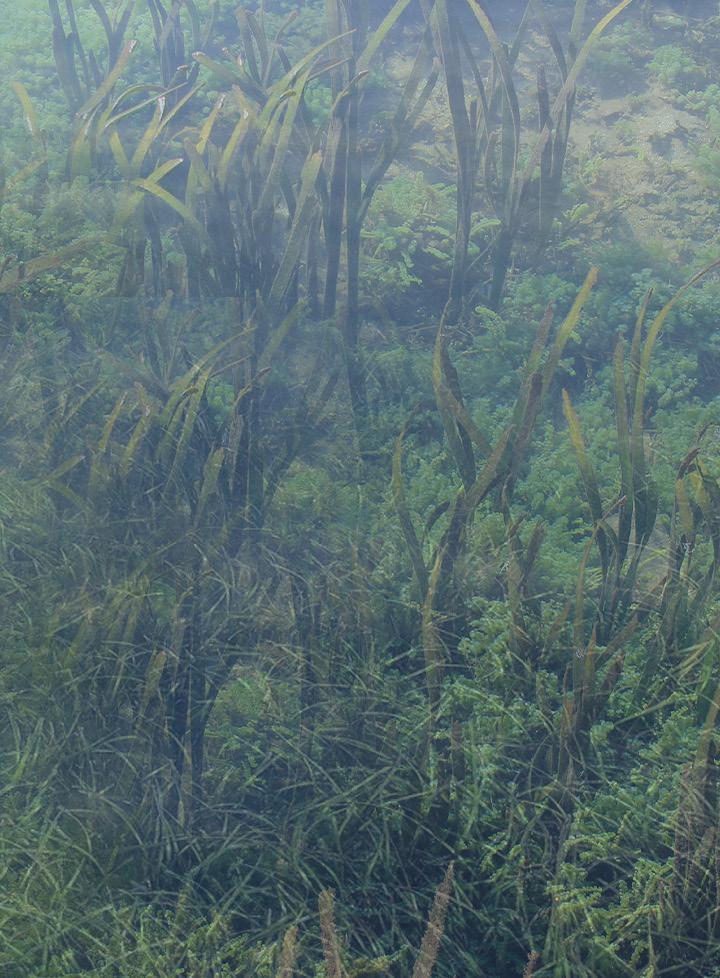
She straps on her snorkel and fins and splashes into the water. She swims over to Mato, a third generation harvester with the most fabulous claws, exclaiming “It’s magical under here!” Mato replies, “Our people have been harvesting eelgrass for thousands of years. It is our responsibility to tend to these forest gardens. They keep our water’s clean, our creatures healthy, and our traditions alive.”
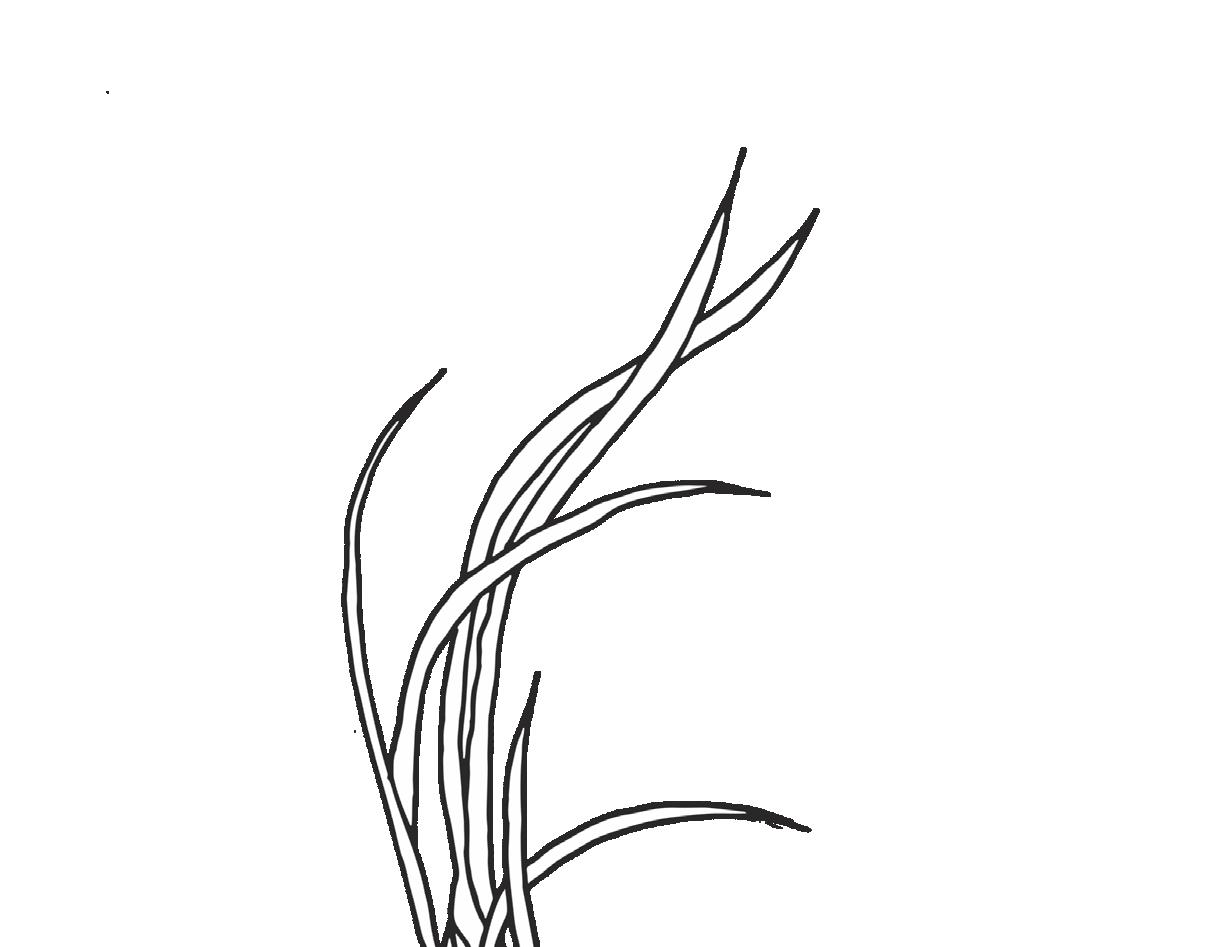



Sarai continues exploring as Mato gets back to work.

With her hair still dripping wet Sarai quickly paddles inland to keep to her schedule. There is much to decide before the salt festival.
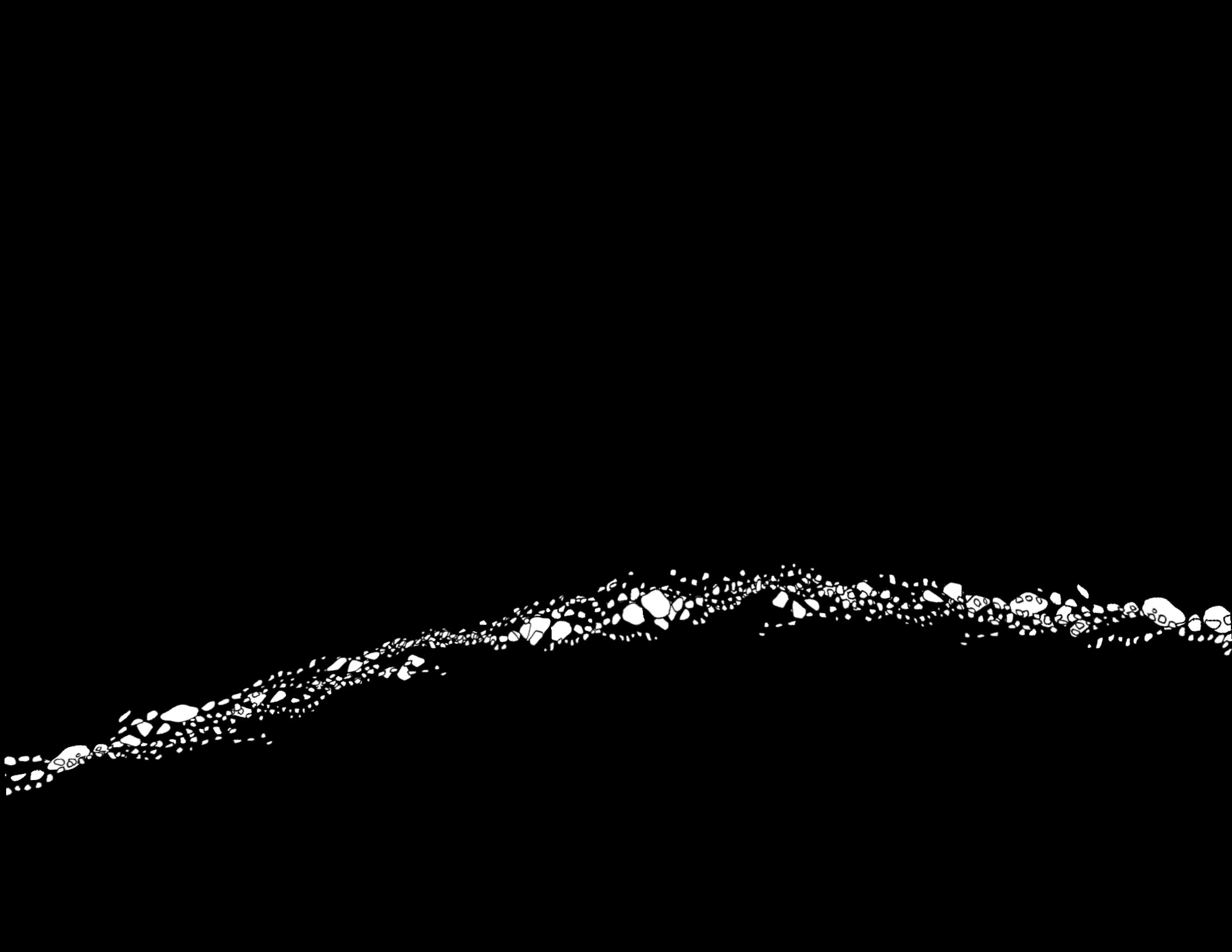
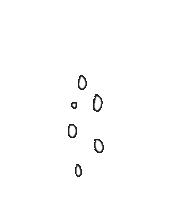
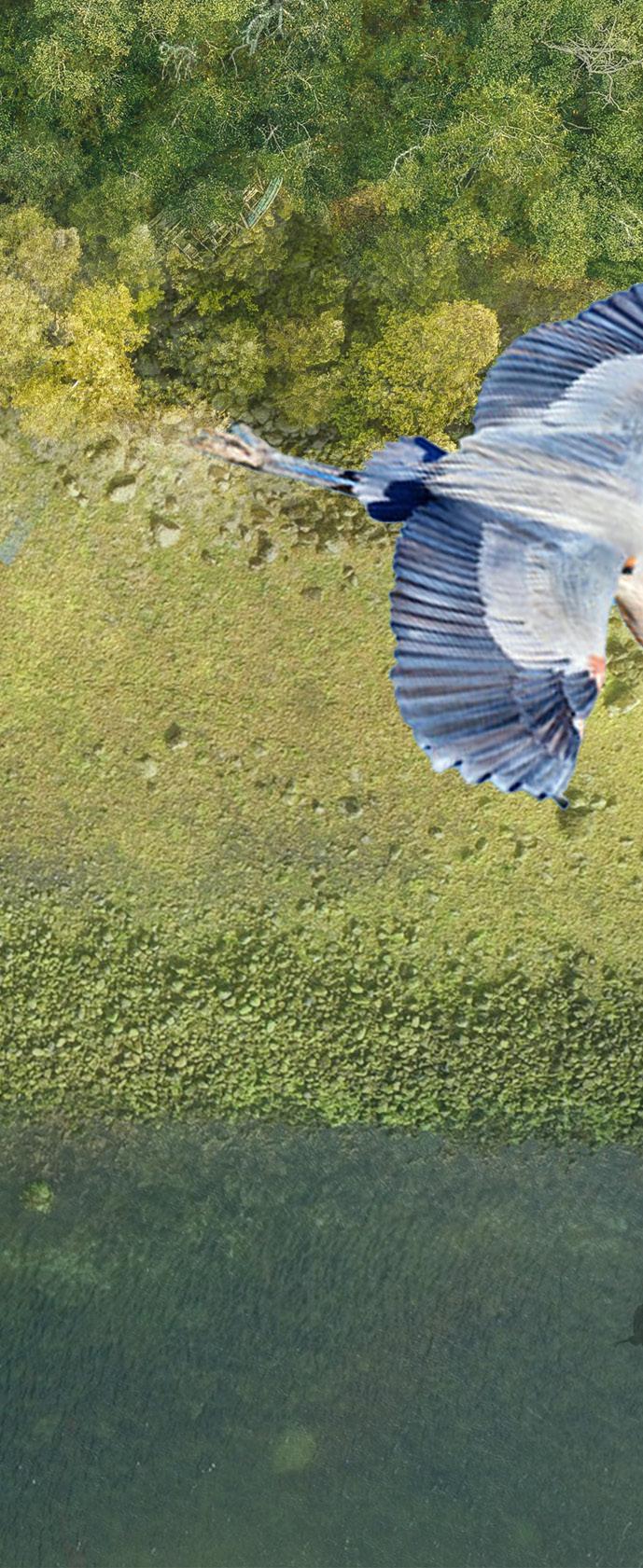
Making her way back to calmer waters she approaches the clam garden where Seyo works.
When Sarai was a child, Seyo babysat her often. Docking at the shore, she recalls fond memories of playing with shells in the clam garden. Back then she was too young to understand the importance of this place.
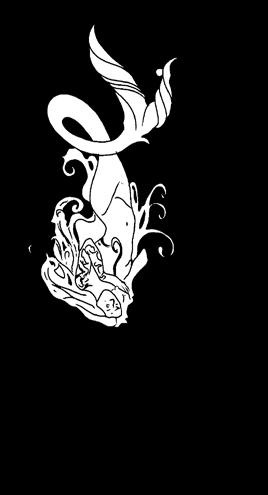

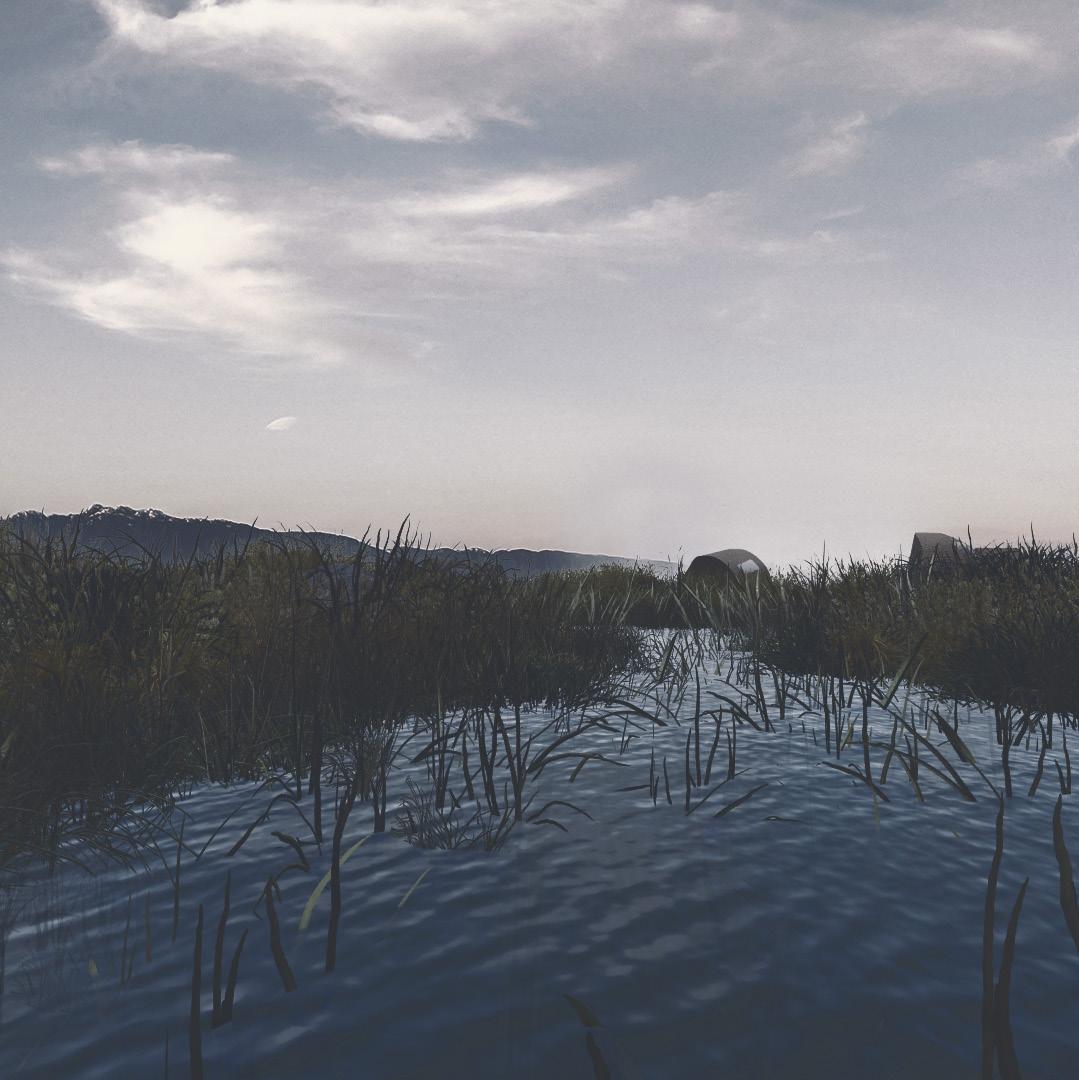
Today she knows that every inch of their land has been thoughtfully cared for by creatures like Malo and friends and stewards like Wayra and Takoda. Watching Seyo and the other clam gardeners at work, she decides she wants the same for herself, but as what?
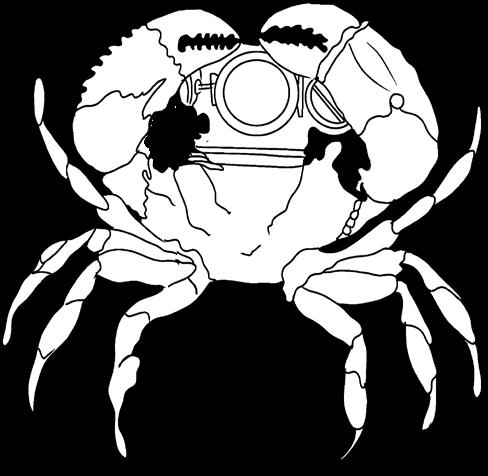
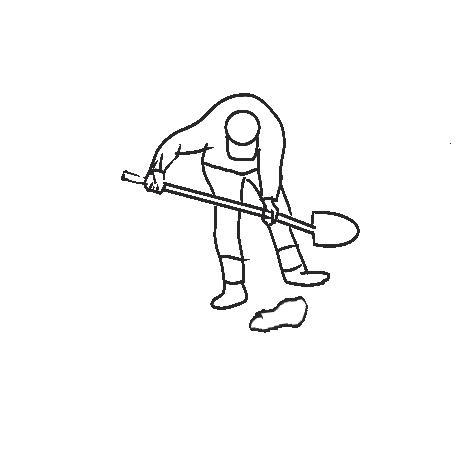
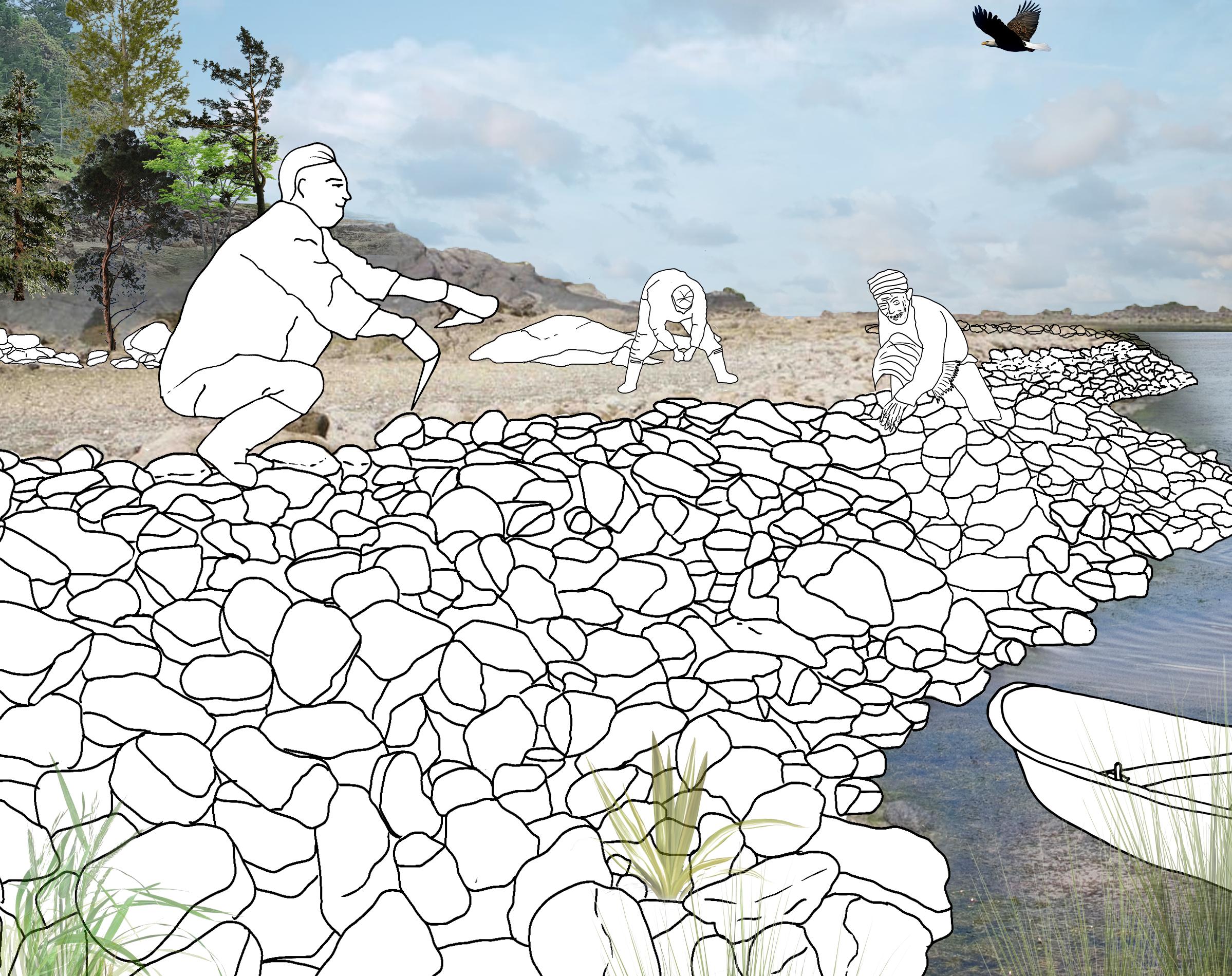
Sarai finds her way over to the village weir where she meets Toshi, a well known fisherman with close ties to her family. Sarai is always happy to see Toshi, not just because he provides tasty Salmon for their family dinners. Toshi stops tending the weir and greets Sarai with a big smile.
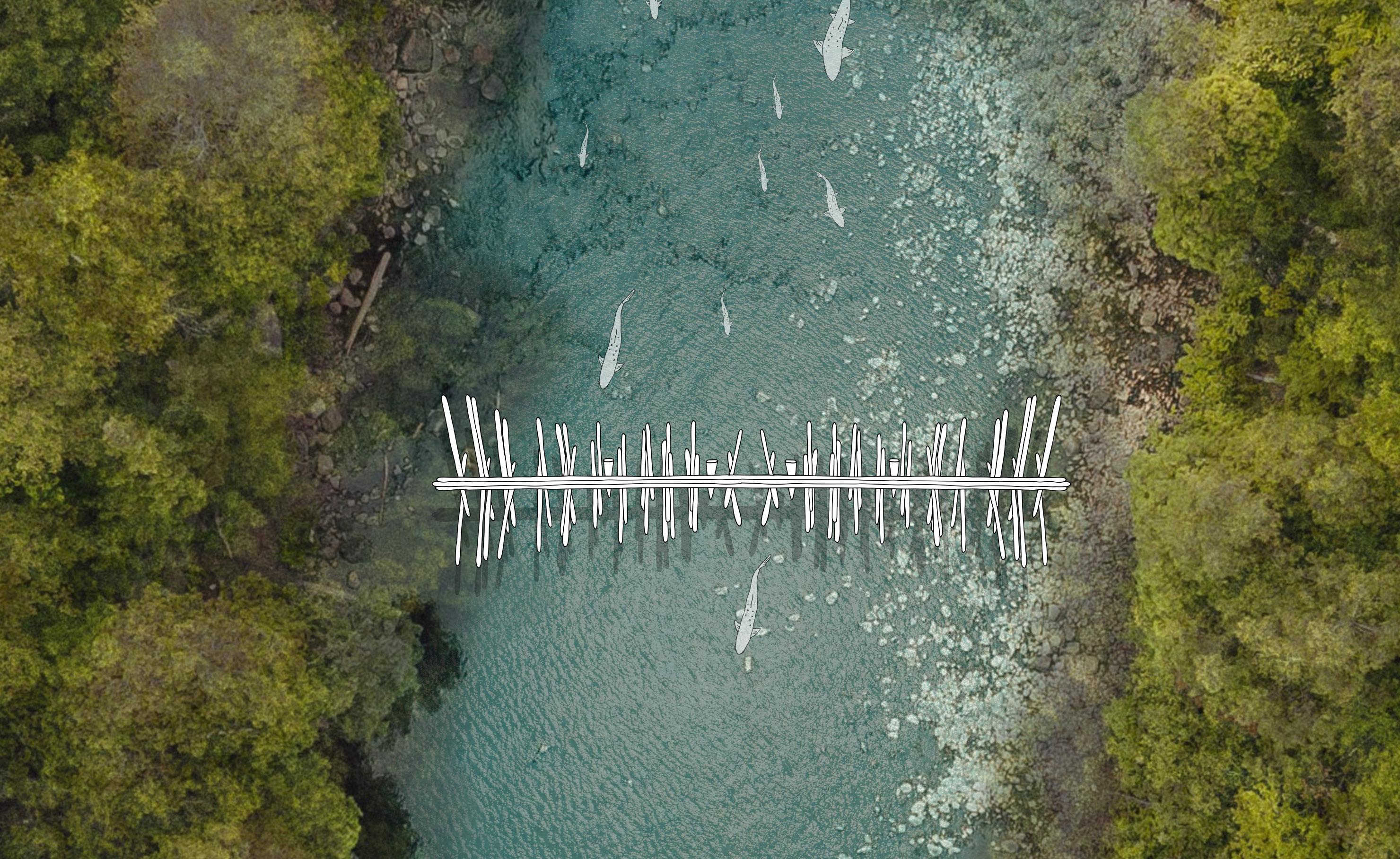
“Sarai, its so nice to see you! Your Grandma tells me you have been on quite the quest these last couple days.”
Sarai replies, “Yes, I have a big decision to make with the salt festival coming.”
Toshi nods his head in agreement and says, “Ah... Yes, it can be difficult to make such decisions. When it was time for my change, I looked back on my own family history for guidance.”
“What do you mean?” Sarai questions.
Toshi replies, “Well...I came from a long line of fishermen. On this very river 300 years ago my ancestors made their living fishing here after they immigrated from Japan. We learned all there was to know about these waters and fell in love with life on the western sea. But there were also bad times, when my family was forced to leave this place for the mountains during the Second World War. Nevertheless, they came back because this was home for them, and now it is home for me too.”
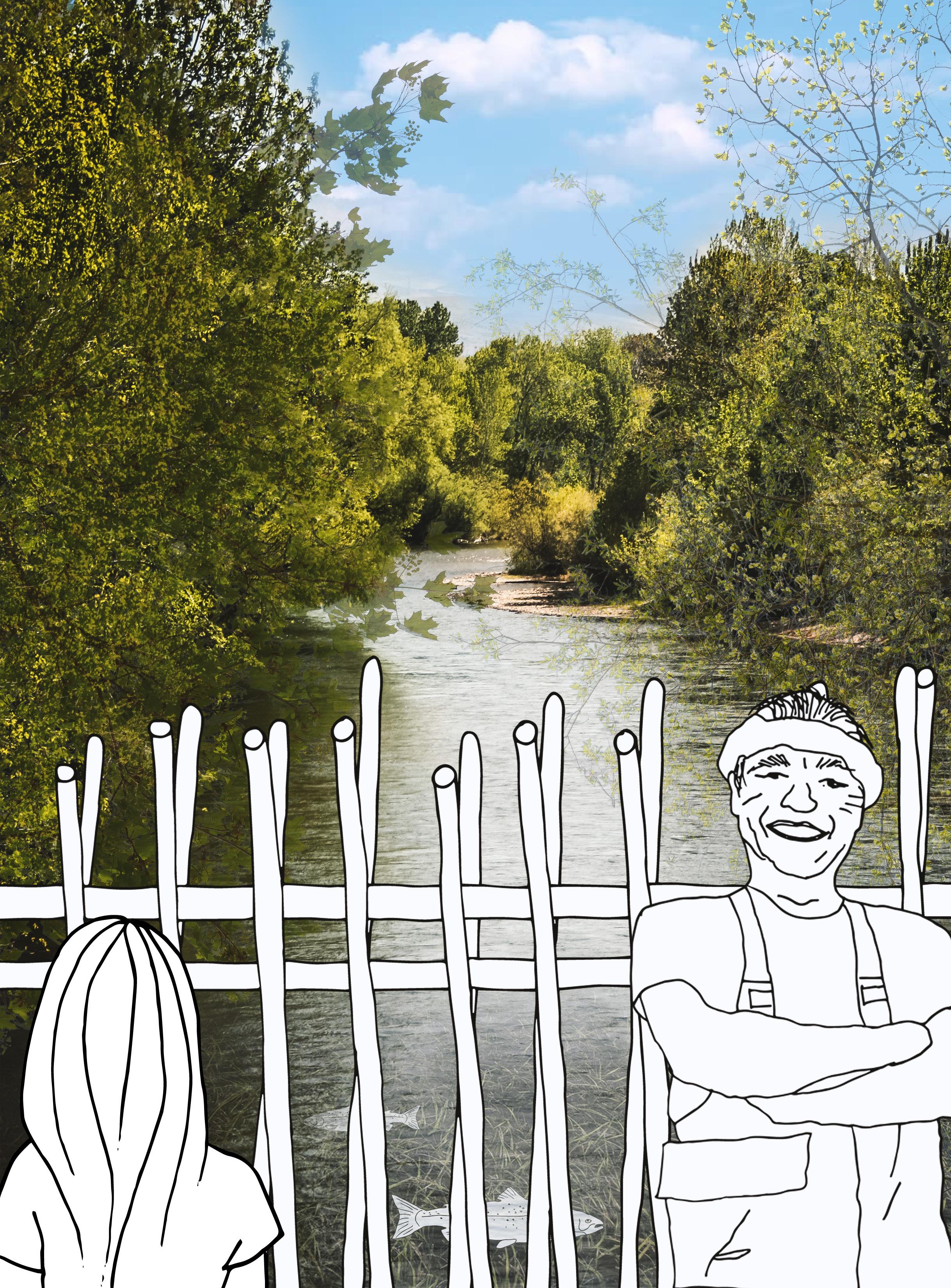
Sarai replies in awe, wondering if she’ll ever feel as connected to this place as Toshi does.
He replies, “Oh but my dear, you too have roots deeper than the river flows...”
Sarai contemplates Toshi’s last words as she paddles home... “Roots deeper than the river flows...” She thinks to herself. Staring down at the creatures beneath her with idle paddles, she feels the ocean breeze and begins to envision her place in this world just like Toshi.
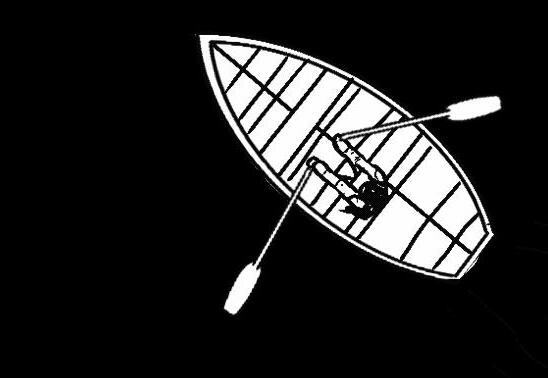
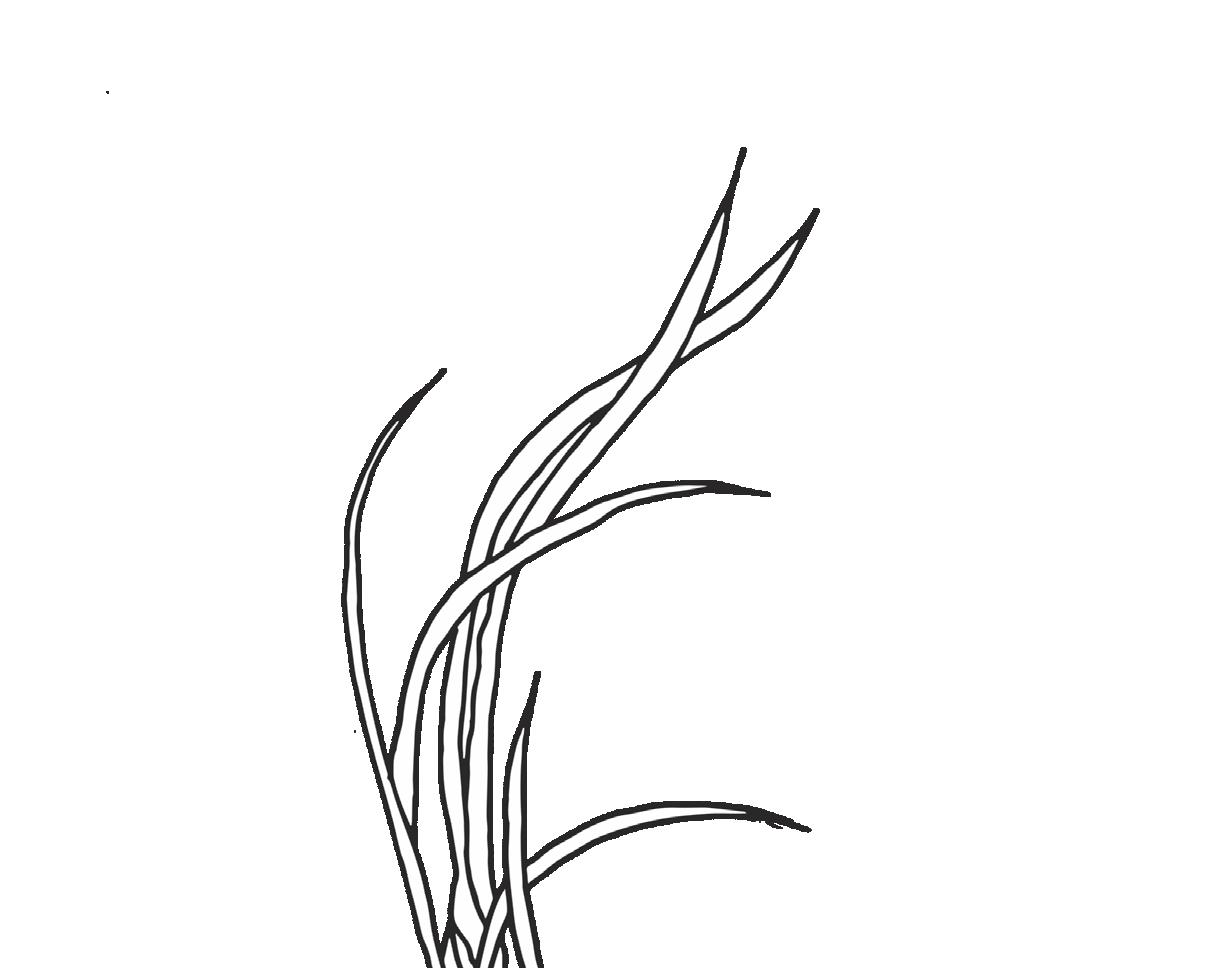
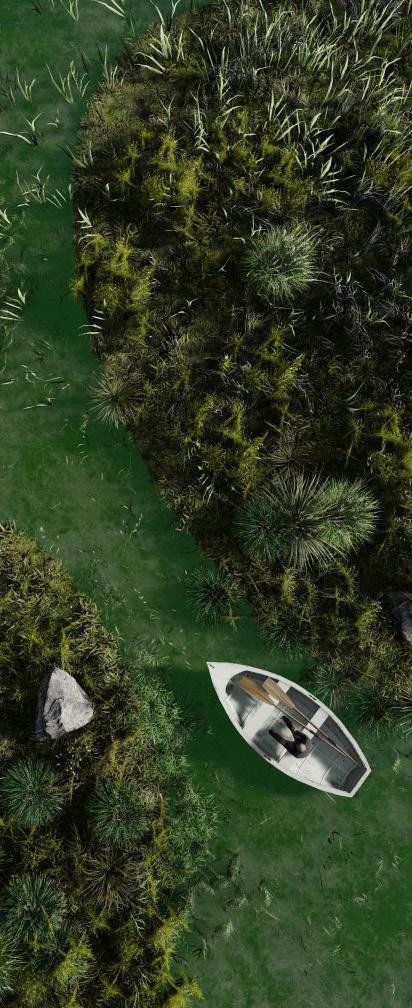
Moments later, she notices the shimmering reflection of salmon below.

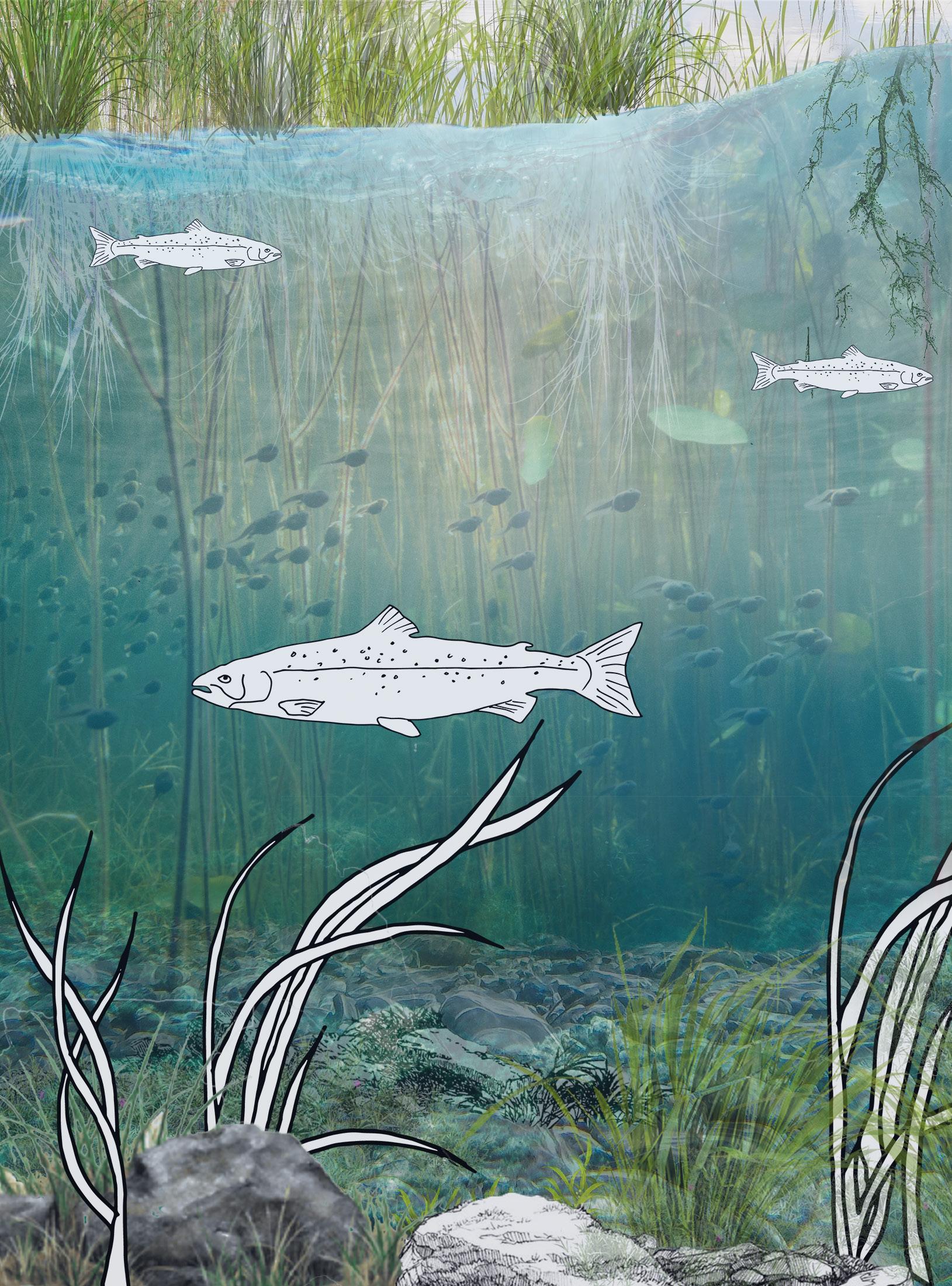
It’s Koho, her dear friend the salmon who is headed upstream. He stops and says, “I can feel it Sarai, the salt is here! See you at the festival!”
With her snorkel gear on, Sarai thinks how wonderful it would be to swim underwater with Koho and follow him up the reaches of the river.
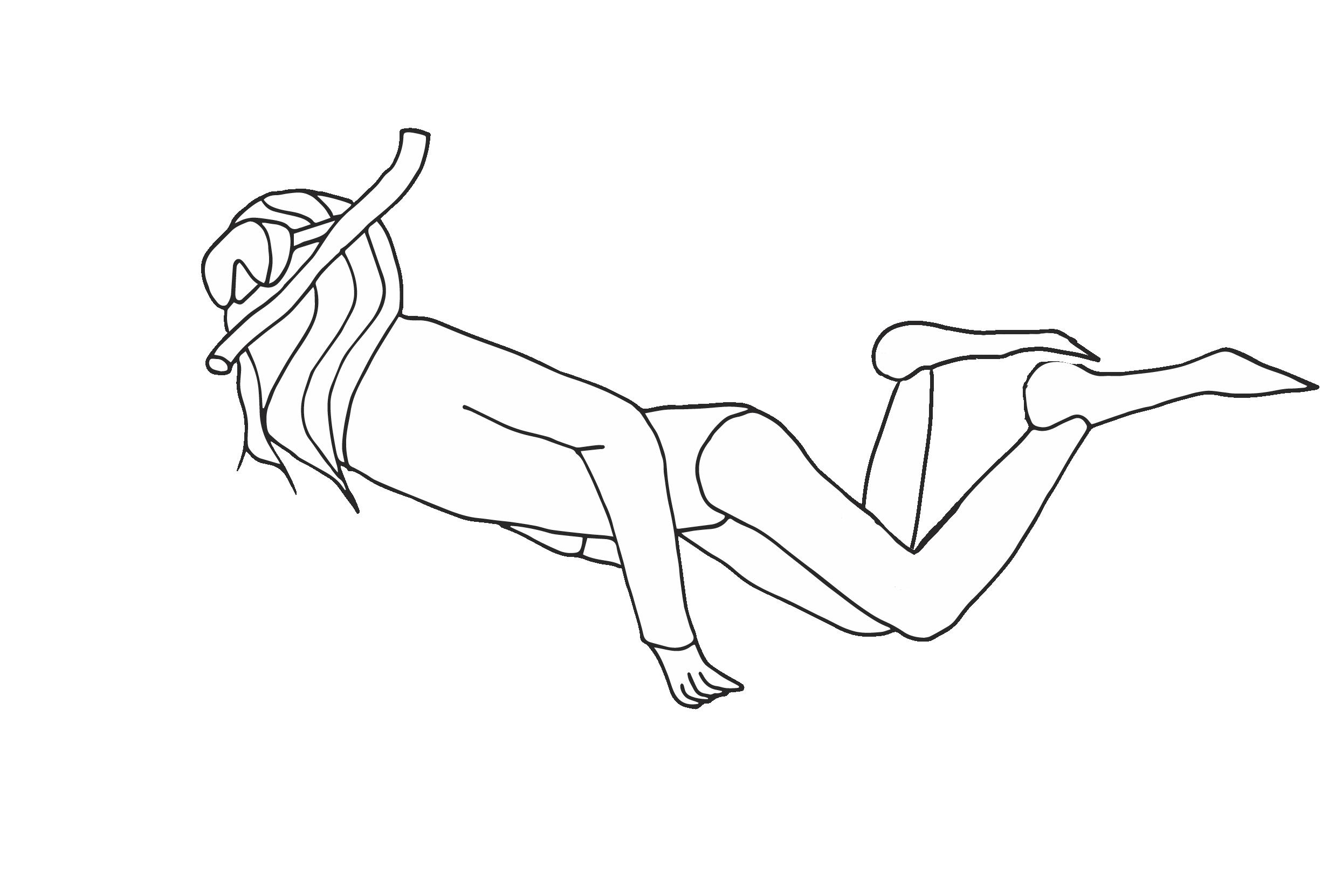
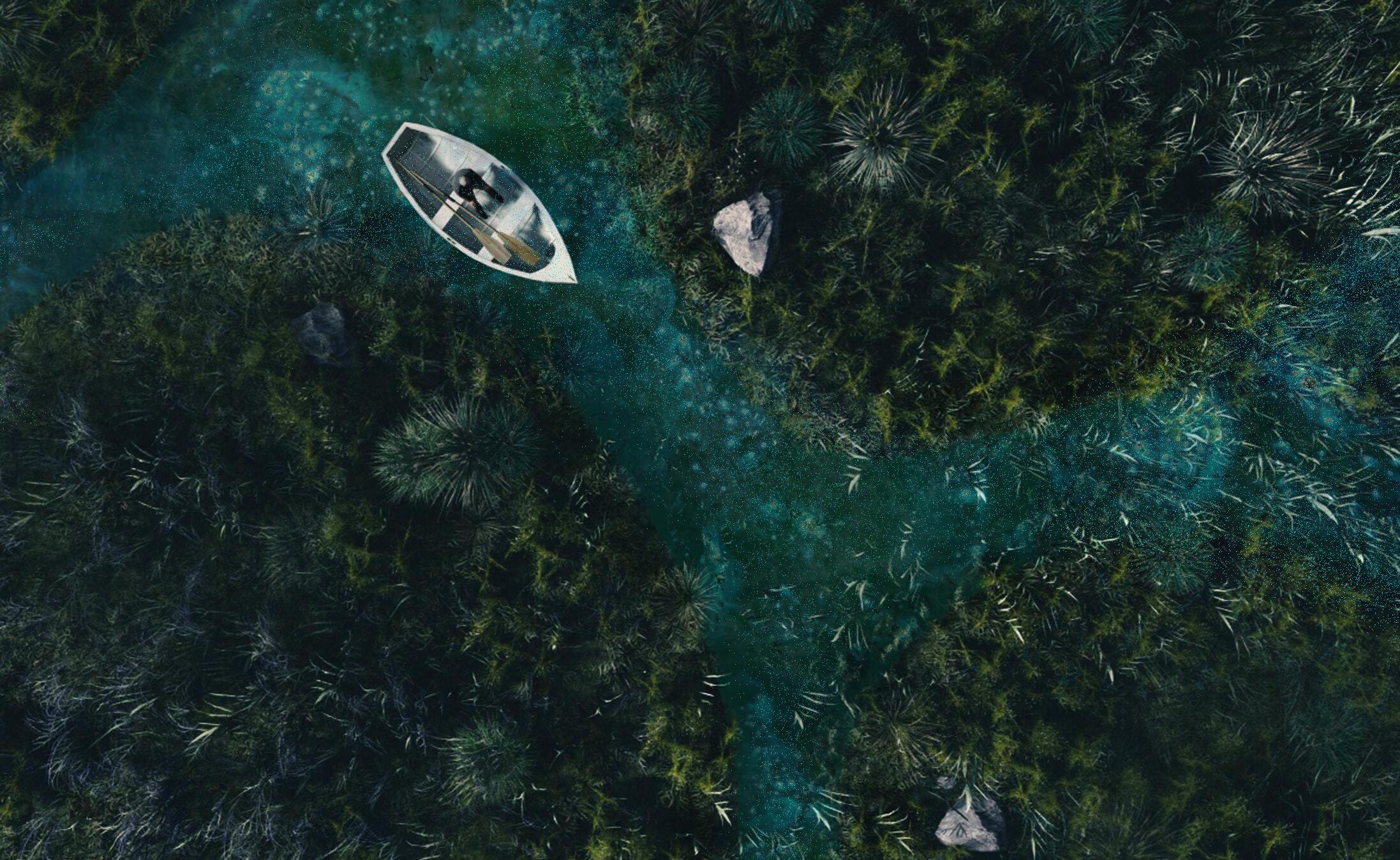
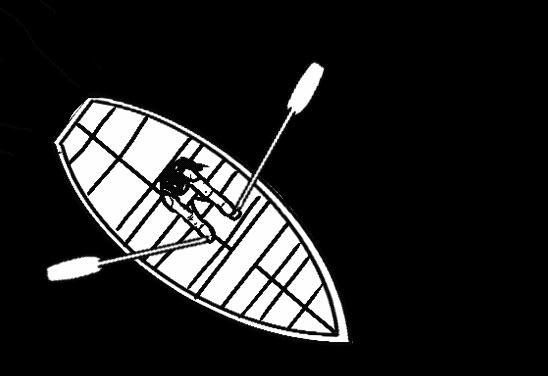
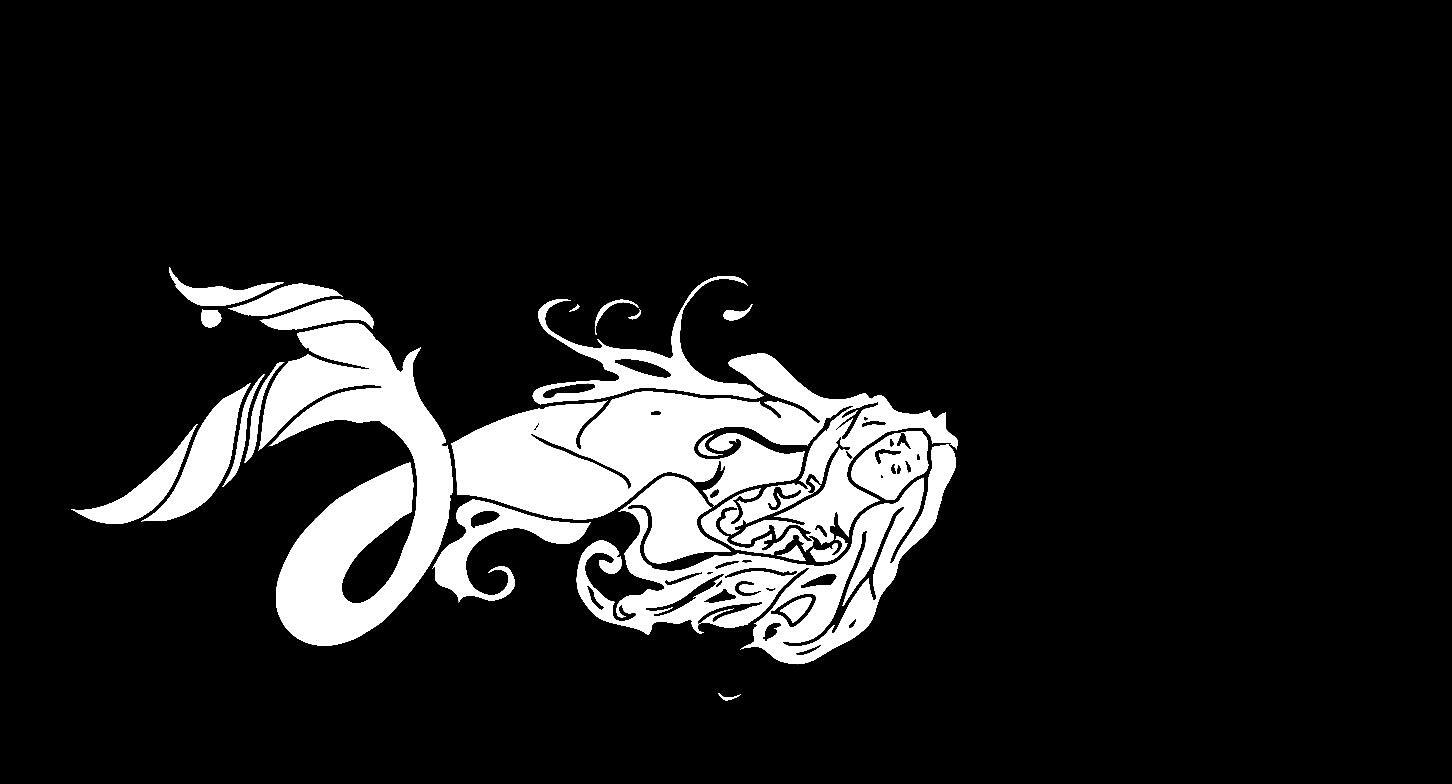
Sarai’s stomach is filled with butterflies, she can barely eat in anticipation for the salt festival.
“Eat up Sarai” her mother orders, “you will need lots of energy for tonight for your change!”
“Oh to be young..” Sarai’s uncle says sighfully,“ I remember how exciting my first salt festival was, that’s when I got these tentacle arms and I never looked back! I love patrolling the ocean floor but its makes me so hungry! I’ll have another fish please!”

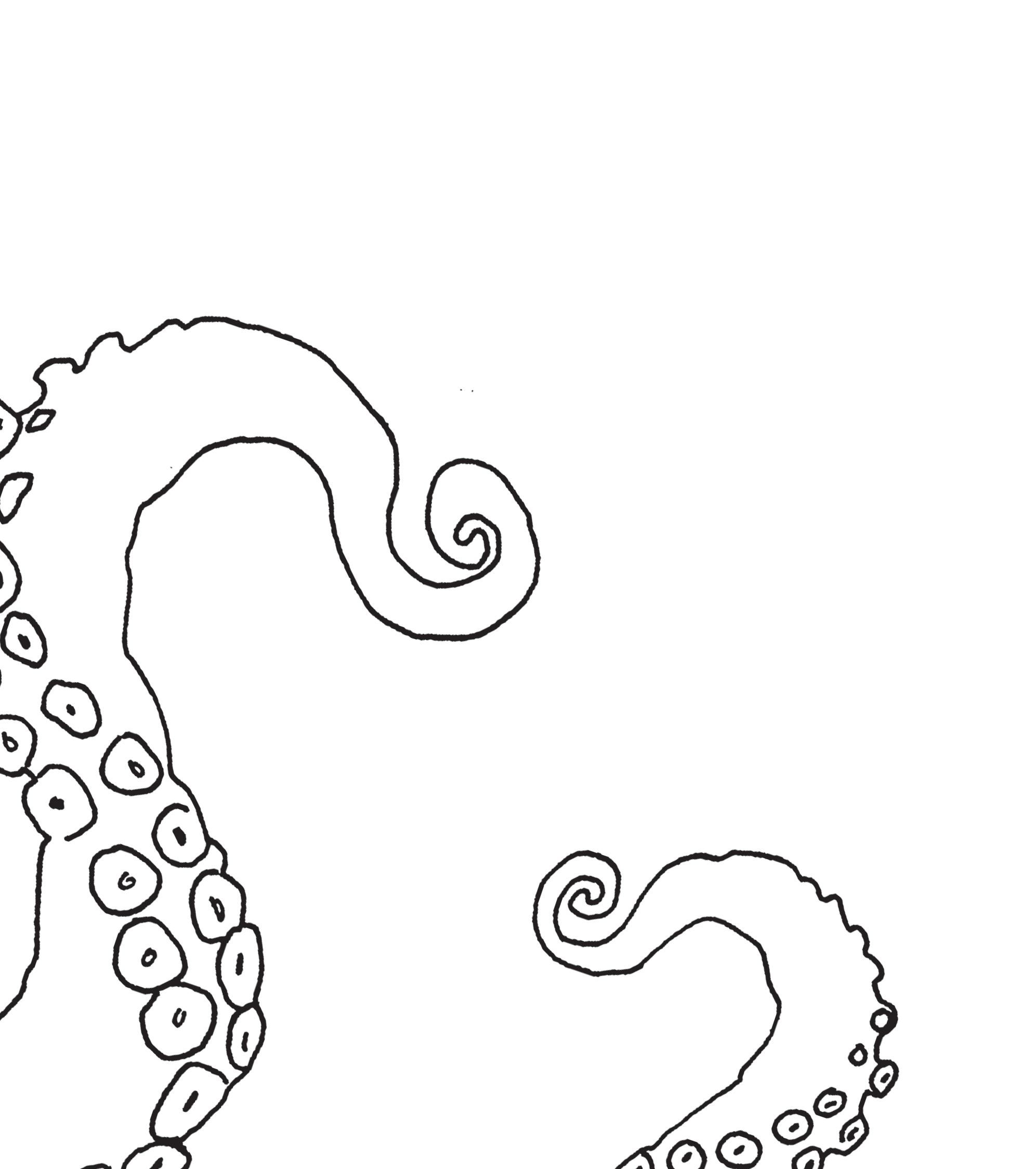
Sarai and her family finish up their meal, and everyone frantically gets ready for the evening festivities.
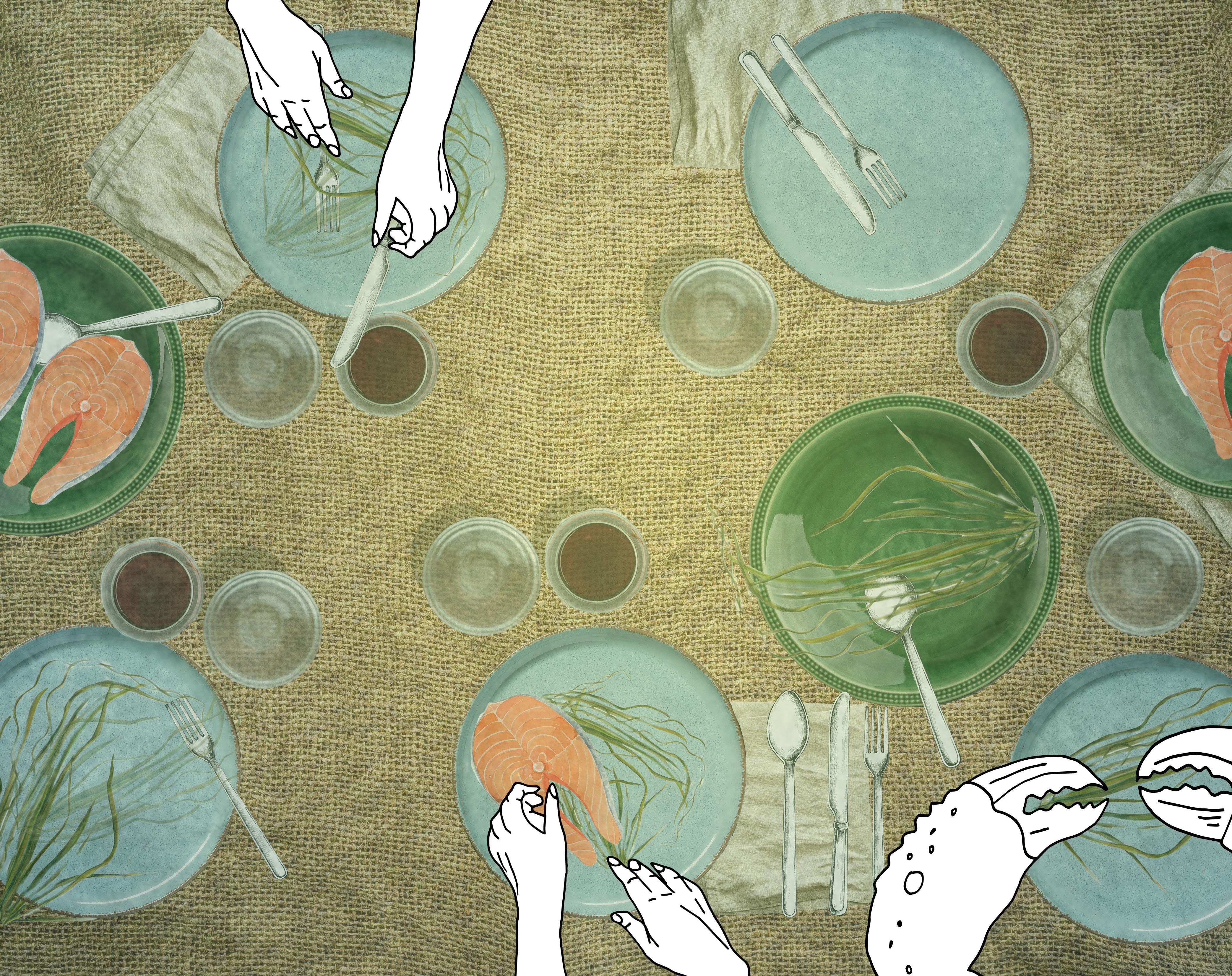
Sarai finally receives her own bioluminescent lantern and collects a big scoop of salty water. The water inside is already glimmering bright blue. She hangs it up on her boat to light her path as she paddles towards the enchanted forest. A sense of calmness and pride washes over her, she is ready.

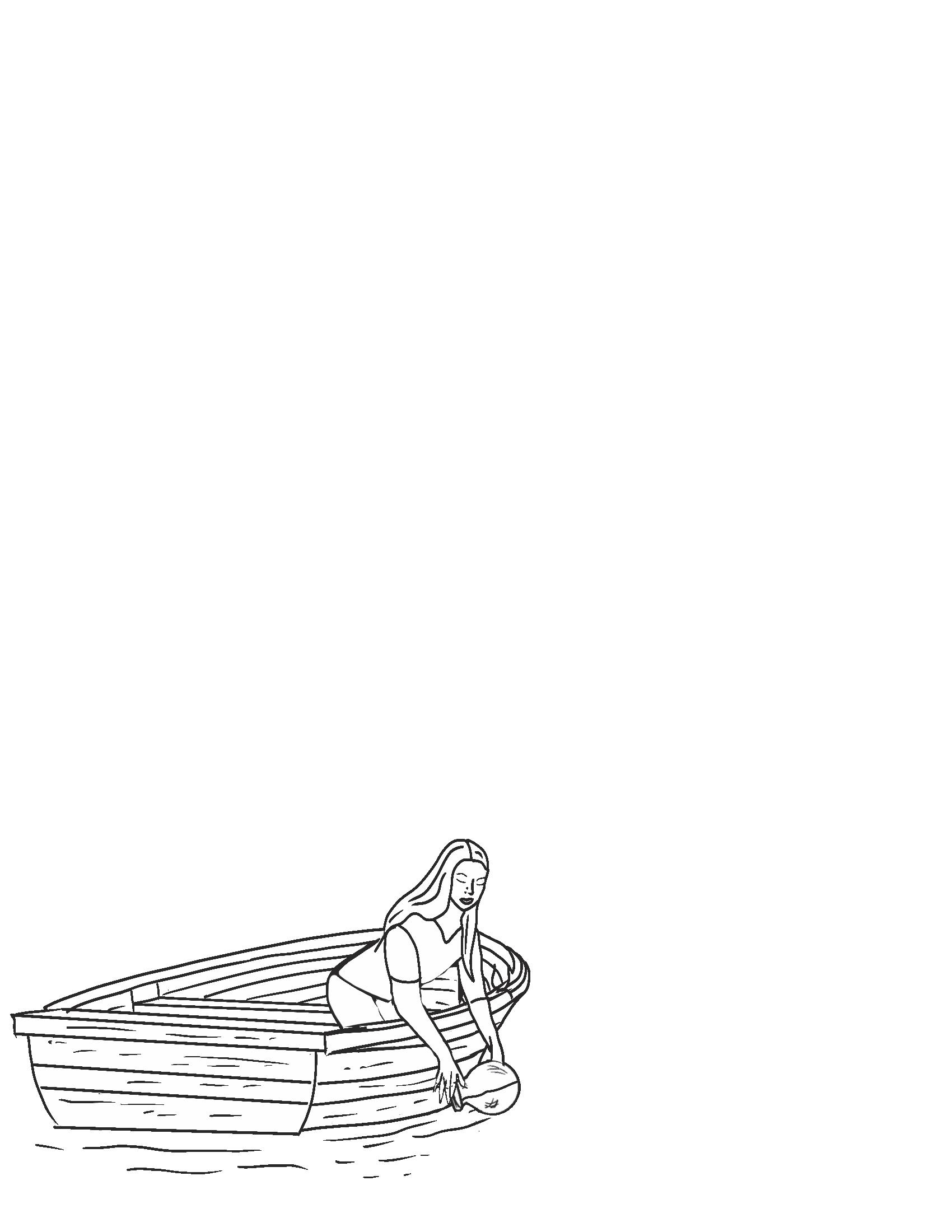
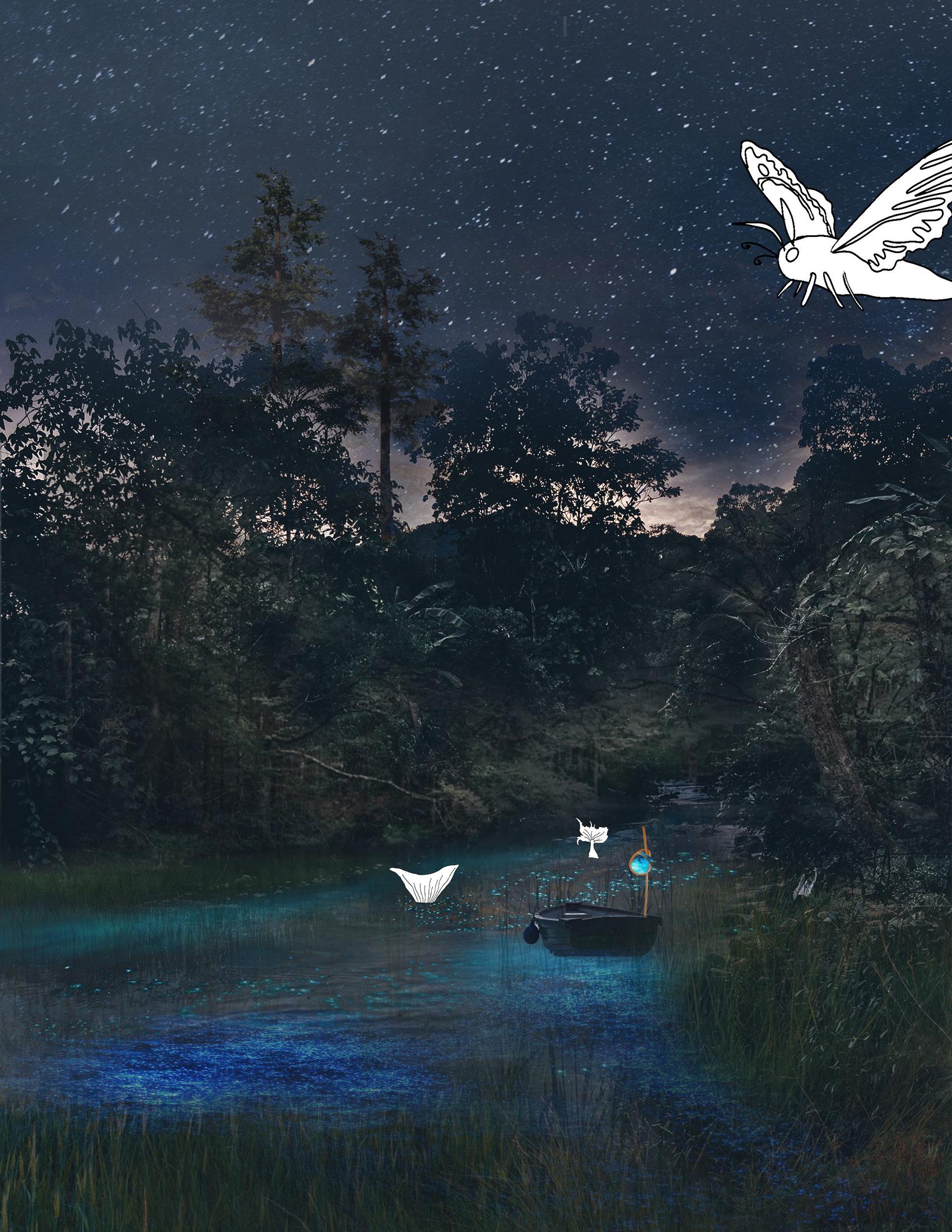
Perhaps Sarai always felt her place was underwater, but this journey brought the clarity she needed. Tonight she is sure. Finally, the river swelled with ocean water, the forest came alive, and in the night she adapted. No longer questioning her place here, she too has sown her roots deeper than the river flows.

